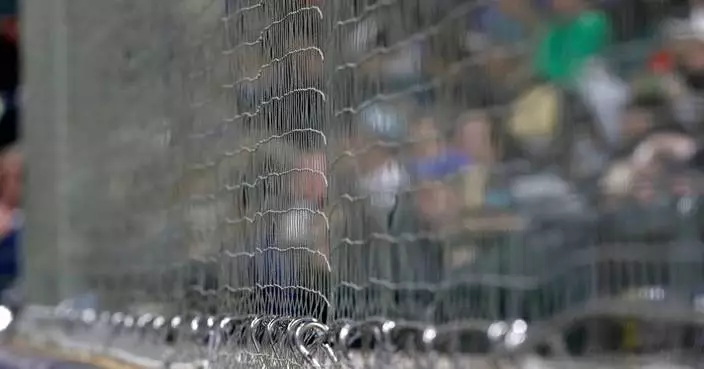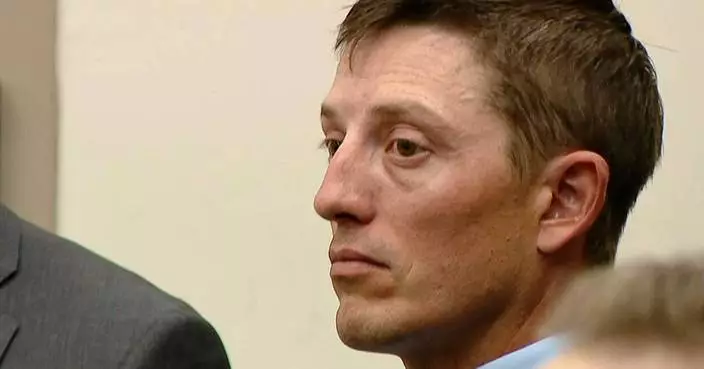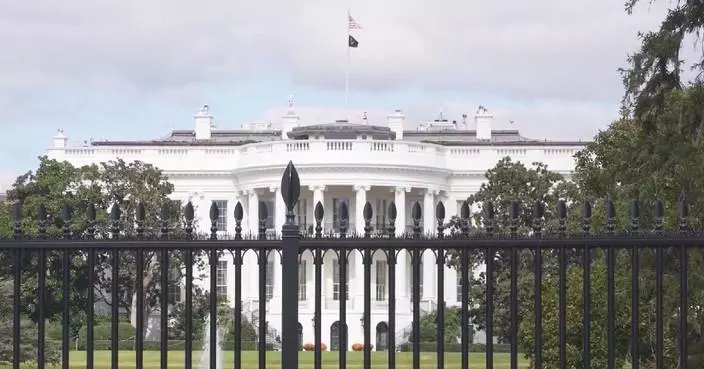NEW YORK (AP) — The Anti-Defamation League says the number of antisemitic incidents in the United States reached a record high last year and notes that 58% of the 9,354 incidents related to Israel, notably chants, speeches and signs at rallies protesting Israeli policies.
In a report released Tuesday, the ADL, which has produced annual tallies for 46 years, said it's the first time Israel-related incidents — 5,422 of them in 2024 — comprised more than half the total. A key reason is the widespread opposition to Israel’s military response in Gaza after the Hamas attack on Israel on Oct. 7, 2023.
Click to Gallery
FILE - People attend the "NO FEAR: Rally in Solidarity with the Jewish People" event in Washington, Sunday, July 11, 2021, co-sponsored by the Alliance for Israel, Anti-Defamation League, American Jewish Committee, B'nai B'rith International and other organizations. (AP Photo/Susan Walsh, File)
FILE - A student wrapped in an Israeli flag listens to Pro-Palestinian protesters gathered on campus at the University of Texas at Austin, on April 30, 2024, in Austin, Texas. (AP Photo/Eric Gay, File)
FILE - A student protester stands in front of the statue of John Harvard, the first major benefactor of Harvard College, draped in the Palestinian flag, at an encampment of students protesting against the war in Gaza, at Harvard University in Cambridge, Mass., on April 25, 2024. (AP Photo/Ben Curtis)
FILE - A student protester against the war in Gaza walks past tents and banners in an encampment in Harvard Yard, at Harvard University in Cambridge, Mass., on April 25, 2024. (AP Photo/Ben Curtis, file)
FILE - Tents and pro-Palestinian protesters occupy a quad at Drexel University, in Philadelphia, Tuesday, May 21, 2024. (AP Photo/Matt Rourke, file)
FILE - Pro-Palestinian demonstrator Mahmoud Khalil, second from left, debates with a pro-Israel demonstrator during a protest at Columbia University, Thursday, Oct. 12, 2023, in New York. (AP Photo/Yuki Iwamura, File)
FILE - New York University students and pro-Israeli supporters rally across the street from where pro-Palestinian students and supporters rally outside the NYU Stern School of Business building, April 22, 2024, in New York. (AP Photo/Mary Altaffer, File)
The ADL’s findings add grist to an intense, divisive debate among American Jews — and others — over the extent to which vehement criticism of Israeli policies and of Zionism should be considered antisemitic.
The debate has broadened as President Donald Trump’s administration makes punitive moves against universities it considers too lax in combating antisemitism and seeks to deport some pro-Palestinian campus activists.
The upshot, for numerous Jewish leaders, is a balancing act: Decrying flagrant acts of antisemitism as well as what they consider to be the administration’s exploitation of the issue to target individuals and institutions it dislikes.
“The fears of antisemitism are legitimate and real — and we don’t want to see those real fears exploited to undermine democracy,” said Amy Spitalnick, CEO of the Jewish Council for Public Affairs. "I feel that a majority of American Jews can believe that two things are true at the same time.”
The ADL said in its new report it is "careful to not conflate general criticism of Israel or anti-Israel activism with antisemitism.” But there are gray areas. For example, the ADL contends that vilification of Zionism — the movement to establish and protect a Jewish state in Israel — is a form of antisemitism, yet some Jews are among the critics of Zionism and of the ADL itself.
Incidents at anti-Israel rallies that counted as antisemitism in the new ADL tally include “justification or glorification of antisemitic violence, promotion of classic antisemitic tropes ... and signage equating Judaism or Zionism with Nazism.” Also counted were celebrations of the Hamas attack on Israel and “unapologetic support for terrorism.”
“In 2024, hatred toward Israel was a driving force behind antisemitism across the U.S.,” said Oren Segal, who leads the ADL’s efforts to combat extremism and terrorism.
The report depicted university campuses as common venues for antisemitic incidents, saying many Jewish students “face hostility, exclusion and sometimes physical danger because of their identity or their beliefs.”
The experience of those students was evoked by Rabbi Rick Jacobs, president of the Union for Reform Judaism — an umbrella group for more than 800 Reform congregations in North America — as he discussed the complexities arising from current antisemitism-related developments.
“We have an obligation to our students on campus,” Jacobs said. “Can they go to Seder? Can they feel safe wearing a yarmulke?”
“At the same time, this current administration has weaponized the fight against antisemitism by weakening core democratic institutions,” Jacobs added.
He referred to the detention and threatened deportation of Mahmoud Khalil, a 30-year-old graduate student who served as a negotiator and spokesperson for pro-Palestinian activists at Columbia University. Khalil has been detained since March 8 despite facing no criminal charges.
“There has to be a legal case — not just you don’t like what he says,” Jacobs said. “What has kept Jewish people safe is the rule of law, due process. If it is undermined for Palestinians, it will be undermined for all of us.”
The ADL dismayed some progressive Jewish leaders by welcoming Columbia's acquiescence in March to Trump administration demands and by initially commending the campaign targeting pro-Palestinian activists such as Khalil.
Recent critics of the ADL include Michael Roth, the first Jewish president of Wesleyan University; political commentator Peter Beinart; and Columbia professor James Schamus, who has been urging his fellow Jews on the faculty to oppose the university’s compliance with administration demands.
Washington Post columnist Matt Bai wrote a scathing column about the ADL on April 1.
“You can’t call yourself a civil rights organization in the United States right now — let alone a civil rights organization for a minority that has been brutally evicted all over the world — and not loudly oppose the cruel and unlawful removal of foreigners whose views happen to be out of fashion,” Bai wrote.
Two days later, the ADL's CEO, Jonathan Greenblatt, wrote an opinion piece for eJewishPhilanthropy seeking to distance the ADL from aspects of the Trump administration’s crackdown on pro-Palestinian activists.
“As an organization that has fought for a minority community for more than 100 years, ADL is incredibly sensitive to the importance of allowing all views to be expressed — even those that we or the majority of Americans disagree with,” Greenblatt wrote. “We should be holding people accountable for actual crimes, not Orwellian thoughtcrimes.”
“We can protect the civil liberties of Jewish students even as we preserve the civil liberties of those who protest, harass or attack them because they are innocent until proven guilty,” he added. “If we sacrifice our constitutional freedoms in the pursuit of security, we undermine the very foundation of the diverse, pluralistic society we seek to defend.”
Beyond the Israel-related incidents, these were among the other findings in the new ADL report:
— The total number of antisemitic incidents in 2024 was up by 344% from five years ago.
— 196 incidents, targeting more than 250 people, were categorized as assault; none of these assaults were fatal.
— 2,606 incidents were categorized as vandalism. Swastikas were present in 37% of these cases.
— There were 647 bomb threats, most of them targeting synagogues.
— Antisemitic incidents occurred in all 50 states and the District of Columbia. More than 10% of the incidents occurred in New York City.
— There were 962 “antisemitic propaganda incidents” linked to white supremacist groups. Three groups — Patriot Front, Goyim Defense League, and the White Lives Matter network — were responsible for 94% of this activity.
The ADL says its annual report tallies criminal and noncriminal acts of harassment, vandalism and assault against individuals and groups as reported to the ADL by victims, law enforcement, the media and partner organizations, and then evaluated by ADL experts.
Associated Press religion coverage receives support through the AP’s collaboration with The Conversation US, with funding from Lilly Endowment Inc. The AP is solely responsible for this content.

FILE - People attend the "NO FEAR: Rally in Solidarity with the Jewish People" event in Washington, Sunday, July 11, 2021, co-sponsored by the Alliance for Israel, Anti-Defamation League, American Jewish Committee, B'nai B'rith International and other organizations. (AP Photo/Susan Walsh, File)

FILE - A student wrapped in an Israeli flag listens to Pro-Palestinian protesters gathered on campus at the University of Texas at Austin, on April 30, 2024, in Austin, Texas. (AP Photo/Eric Gay, File)
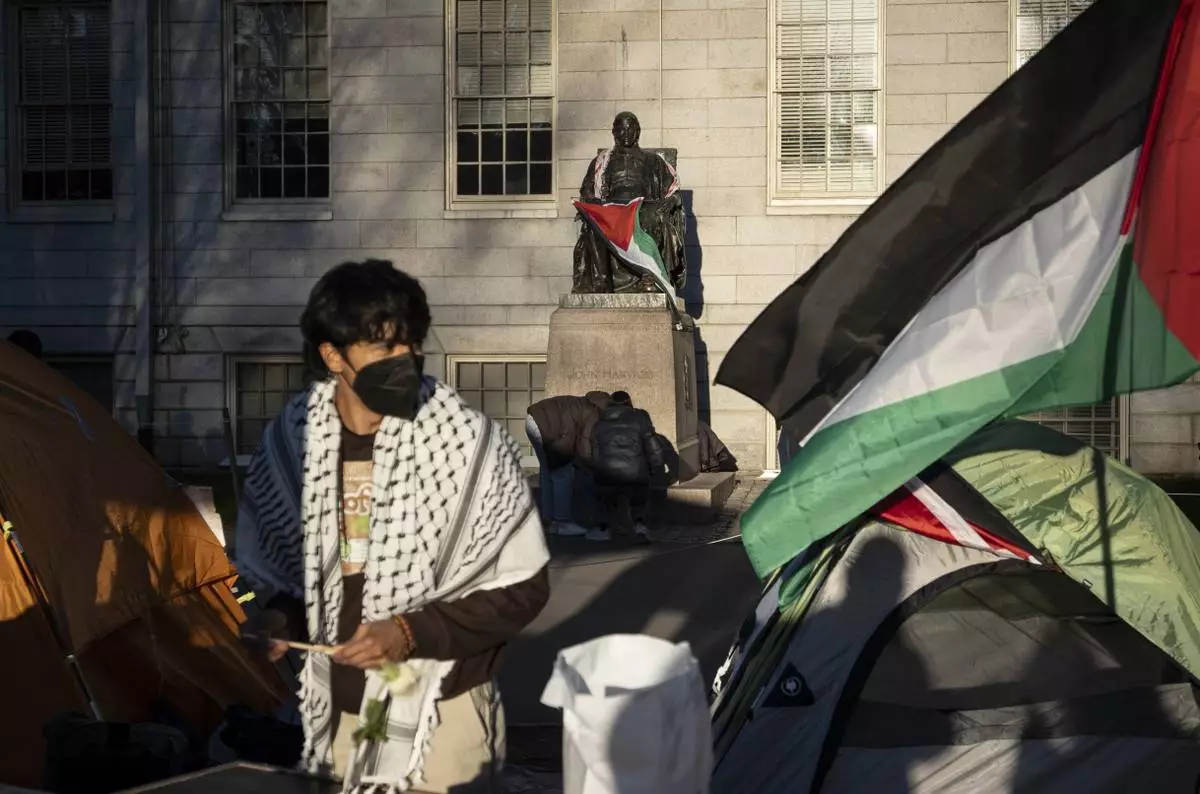
FILE - A student protester stands in front of the statue of John Harvard, the first major benefactor of Harvard College, draped in the Palestinian flag, at an encampment of students protesting against the war in Gaza, at Harvard University in Cambridge, Mass., on April 25, 2024. (AP Photo/Ben Curtis)
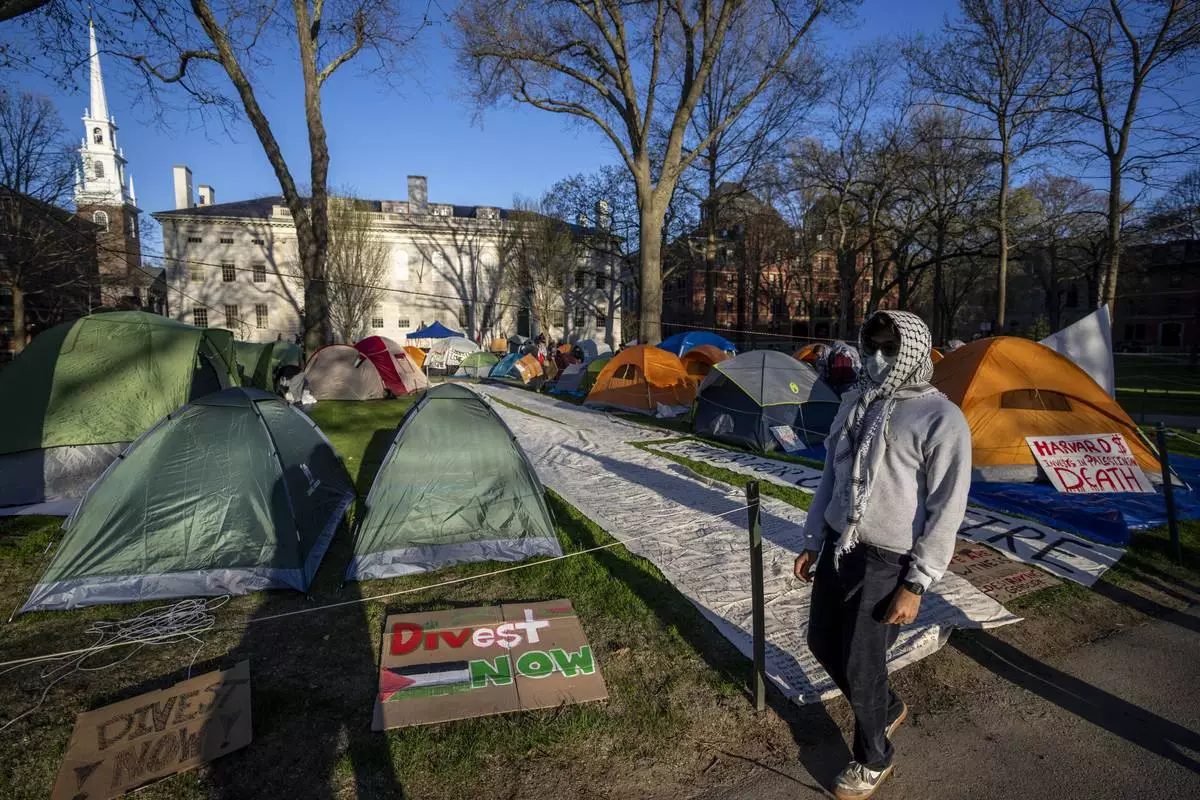
FILE - A student protester against the war in Gaza walks past tents and banners in an encampment in Harvard Yard, at Harvard University in Cambridge, Mass., on April 25, 2024. (AP Photo/Ben Curtis, file)

FILE - Tents and pro-Palestinian protesters occupy a quad at Drexel University, in Philadelphia, Tuesday, May 21, 2024. (AP Photo/Matt Rourke, file)
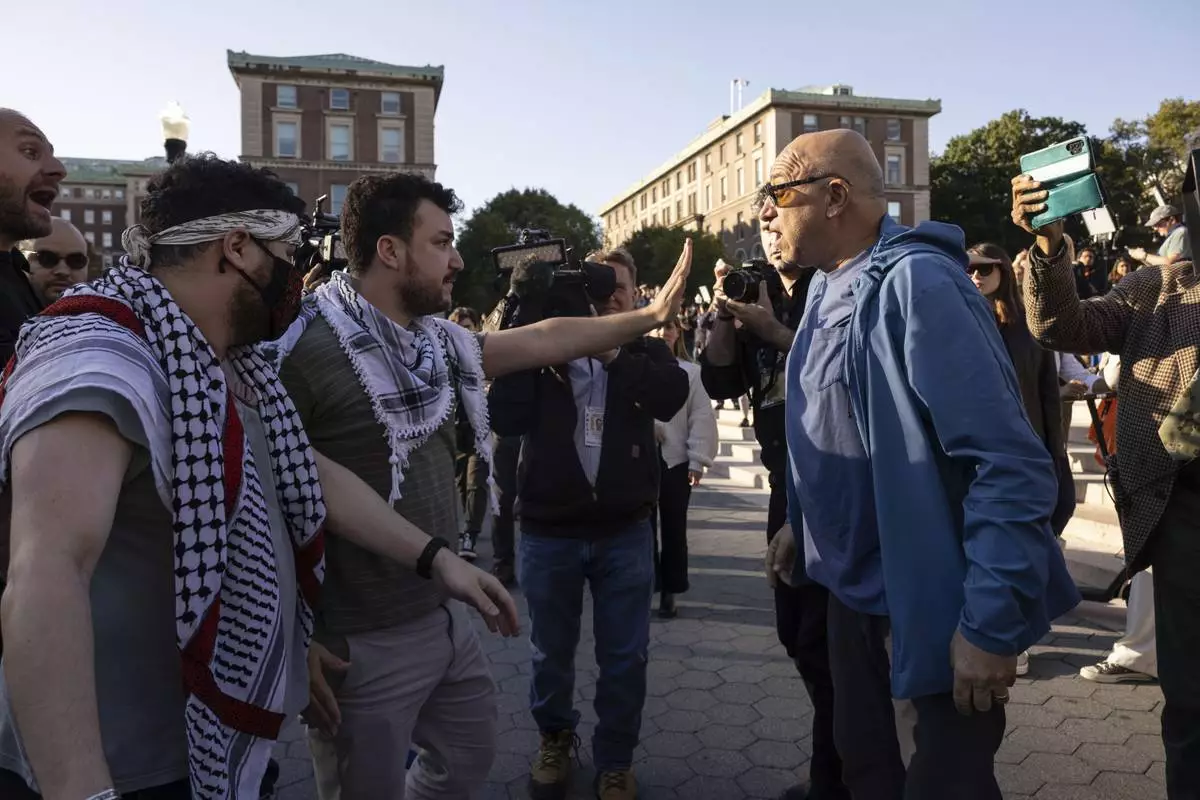
FILE - Pro-Palestinian demonstrator Mahmoud Khalil, second from left, debates with a pro-Israel demonstrator during a protest at Columbia University, Thursday, Oct. 12, 2023, in New York. (AP Photo/Yuki Iwamura, File)

FILE - New York University students and pro-Israeli supporters rally across the street from where pro-Palestinian students and supporters rally outside the NYU Stern School of Business building, April 22, 2024, in New York. (AP Photo/Mary Altaffer, File)
The defense in Karen Read's second murder case repeatedly sparred Friday with a key witness who was with Read the morning she found her Boston police officer boyfriend dead in the snow, hoping to undermine her testimony.
Defense attorney Alan Jackson tried to suggest that past inconsistencies showed Jennifer McCabe’s testimony couldn’t be trusted. He also suggested that she and several other witnesses coordinated their version of events around the death of John O'Keefe.
Prosecutors say Read, 45, backed her SUV into O’Keefe after dropping him off at a party hosted by a fellow officer in January 2022 and left him to die in the snow. Defense attorneys say she was a victim of a conspiracy involving the police and have suggested he was killed by someone inside the home.
A mistrial was declared last year after jurors said they were at an impasse. Read's second trial on charges of second-degree murder, manslaughter and leaving the scene, began April 22 and has thus far looked similar to the first.
On Friday, Jackson tried to convince the jury that McCabe's testimony has shifted over time or she left out key details about the events before and after O'Keefe's death.
McCabe, he said, never mentioned that she called her sister just before O'Keefe was found in the snow — something she denied. The two also sparred over what she told former State Trooper Michael Proctor, the lead investigator on the case, about a broken taillight on Read's vehicle. Jackson said she told Proctor that it was cracked, while McCabe testified that she "believed I said it was broken and cracked and it was missing pieces.”
After Jackson challenged McCabe about the route she took to the house, McCabe sounded exasperated.
“I was in shock,” she told the court. “So a lot of things from that day are foggy. Certain things, certain details I may have forgotten.”
Jackson responded that “all of your testimony over the last several days is based on that memory that you just described to these jurors, correct?
McCabe then shot back that “there are certain things I’ll never forget.”
Jackson accused McCabe and other witnesses of coordinating their versions of events in the hours and days after O'Keefe died. He brought up a group chat that included McCabe and several others in which they talked about the case and acknowledged listening to a police interview of another witness, Kerry Roberts, who was also with Read and McCabe that morning.
“In the text that we just saw, you were colluding with other witnesses, percipient witnesses in this case through those text messages, were you not?” Jackson asked, prompting McCabe to deny it.
He pressed further, suggesting she listened to Roberts' interview to help shape her own version of events, which McCabe again denied.
The two also sparred over a Google search — “hos (sic) long to die in cold” — by McCabe related to concerns that O"Keefe was suffering from hyperthermia. She pushed back on a suggestion it was done much earlier in the morning of O'Keefe's death. She also insisted it was done at Read's request soon after they arrived on the scene, despite no other witnesses recounting that.
“I stand by that 110%,” she said, when Jackson challenged her account.
Jackson also questioned McCabe's actions once she arrived on the scene, arguing that she should have done more to help O'Keefe. He suggested that she knew the homeowner, Brian Albert, a friend who had been a Boston police officer, could have provided blankets and was trained to provide life-saving treatment.
“You could have walked 25 feet to the front door, walked in the house and screamed for Brian Albert to help you in those precious minutes,” Jackson asked.
McCabe said her focus was exclusively on O'Keefe at the time.
“That would have taken me away from helping John, getting Kerry blankets, giving him compressions,” she said.
During her second day of testimony Wednesday, McCabe recalled a chaotic scene when they reached the house where O'Keefe, 46, was later found lying in the snow. She called 911 to report a body while Read and another friend Roberts tried to warm O'Keefe up and perform CPR.
Read, she said, was running around and screaming so much that police suggested she sit in a police cruiser. The three sat together praying, and McCabe remember Read wondering aloud who would take care of O'Keefe's two adopted children. As O'Keefe's body was moved to an ambulance, Read screamed for Roberts to go check on him and wondered if he was dead.
Then, McCabe testified that she was standing next to a police officer and a paramedic as Read told them “I hit him” three times — corroborating earlier testimony from paramedics.
But Jackson challenged McCabe, questioning why those comments couldn't be found in earlier police reports or in the 227 pages of her grand jury testimony. Instead, Jackson said she told the grand jury that she recalled Read saying to a paramedic, “Did I hit him? Could I have hit him? Is he dead? Is he dead? Is he dead?”
“In point of fact, in your entire grand jury testimony, you never said my client said the words I hit him.” he said.
McCabe insisted she had told police what Read said — even if it wasn't in the reports — and that it wasn't in the grand jury testimony because she wasn't asked specifically about it. As for the comments in her grand jury testimony, she said there were many conversations with paramedics and police at the scene.
“'I hit him. I hit him. I hit him,' is just as fresh today as it was three years ago,” she said.
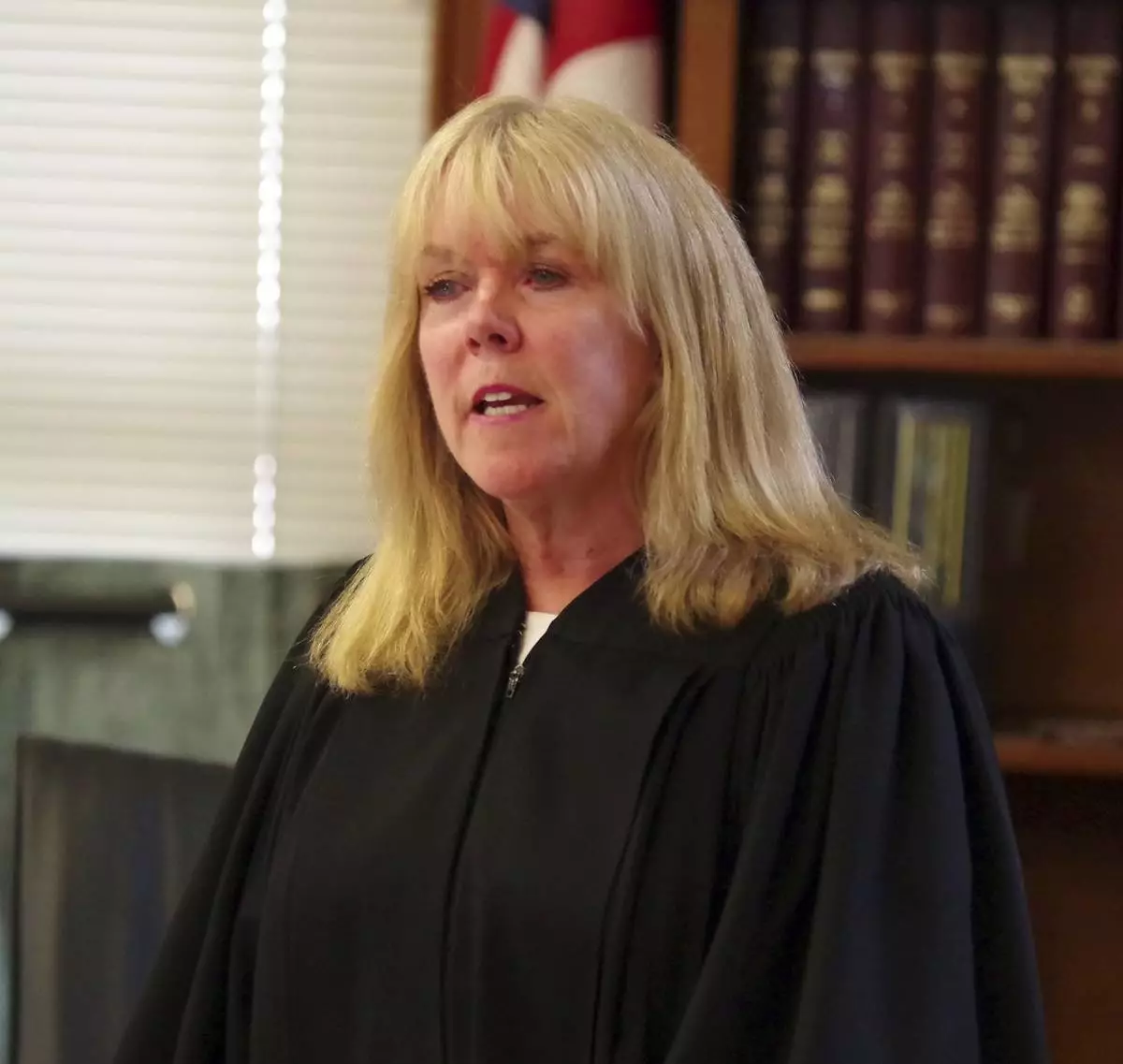
Judge Beverly Cannone, presiding in Norfolk Superior Court for the Karen Read trial in Dedham, Mass., Friday, May 2, 2025. (Mark Jarret Chavous/The Enterprise via AP, Pool)
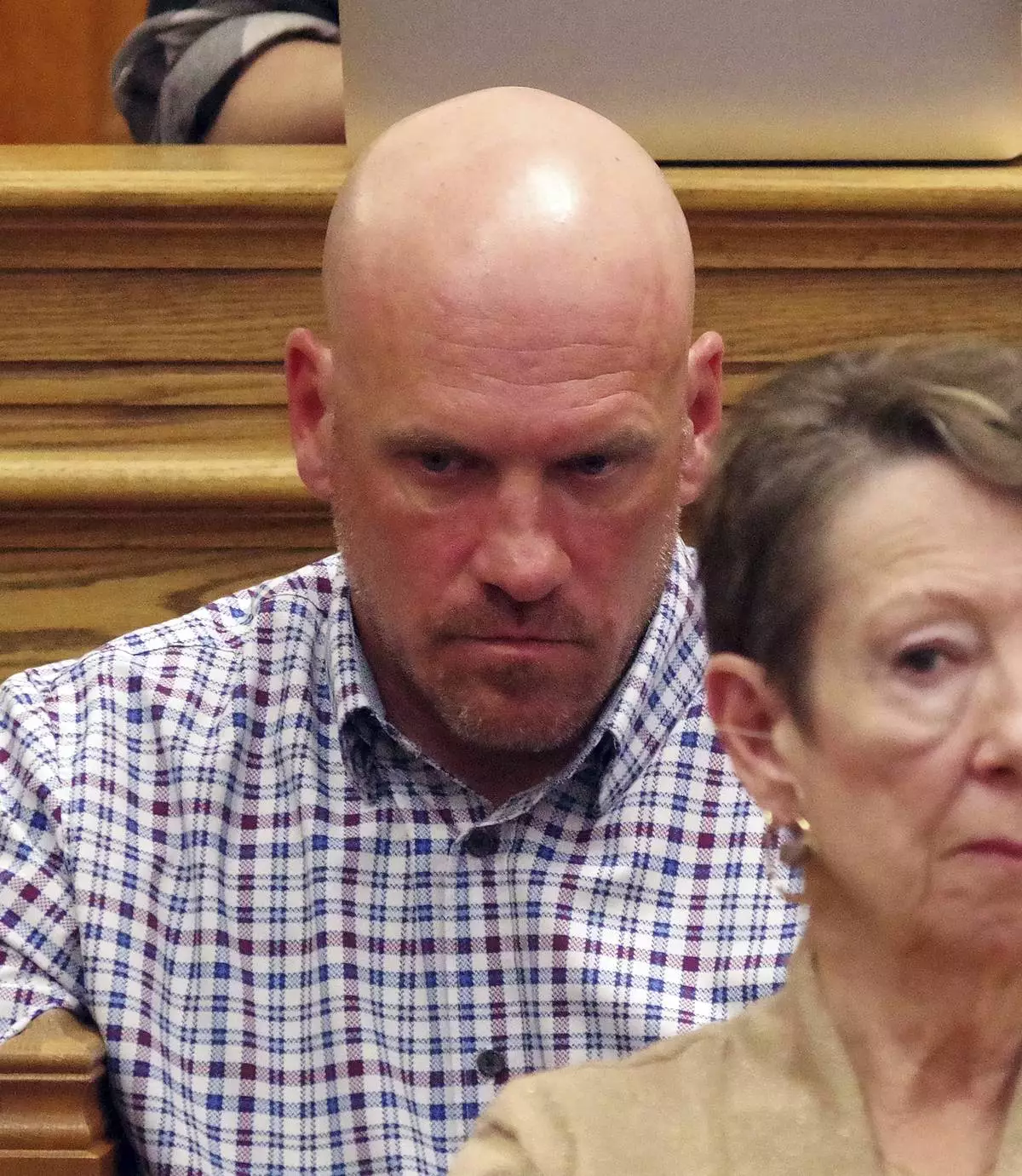
Paul O'Keefe, brother of the decedent John O'Keefe, sits with his family during Karen Read's trial at Norfolk Superior Court in Dedham, Mass., Friday, May 2, 2025. (Mark Jarret Chavous/The Enterprise via AP, Pool)
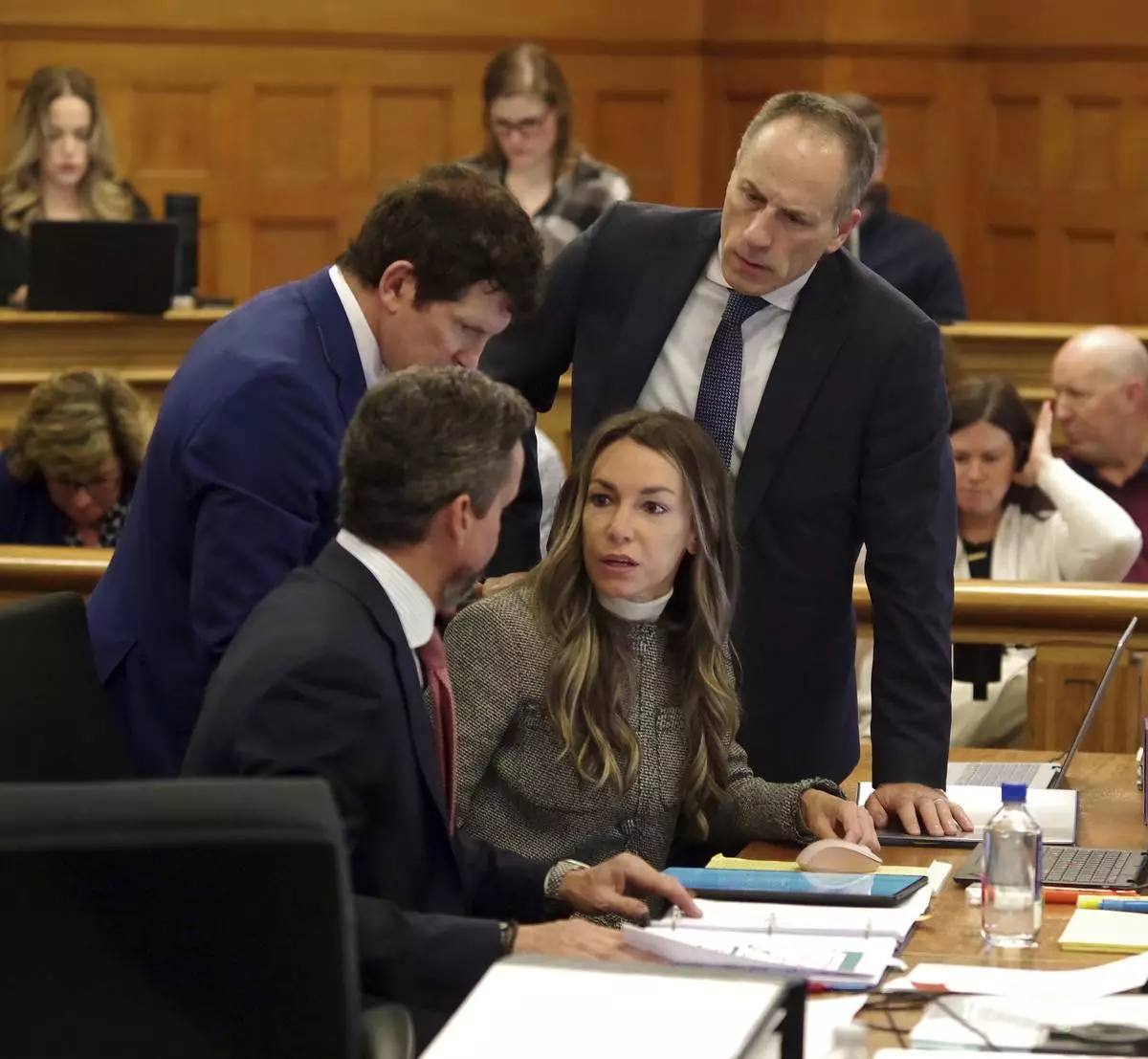
Karen Read talks with her attorneys during her trial at Norfolk Superior Court in Dedham, Mass., Friday, May 2, 2025. (Mark Jarret Chavous/The Enterprise via AP, Pool)
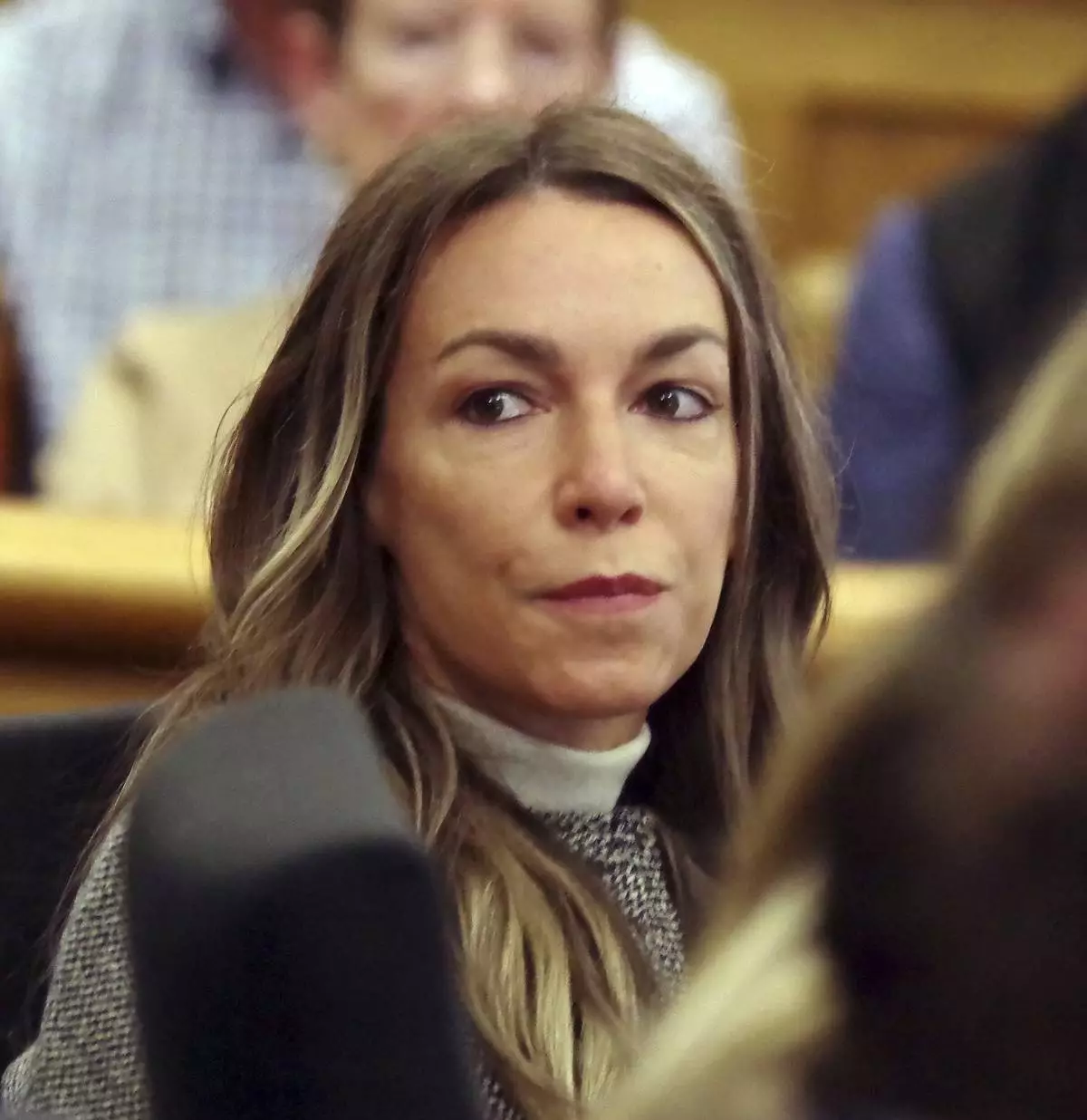
Karen Read listens during her trial at Norfolk Superior Court in Dedham, Mass., Friday, May 2, 2025. (Mark Jarret Chavous/The Enterprise via AP, Pool)
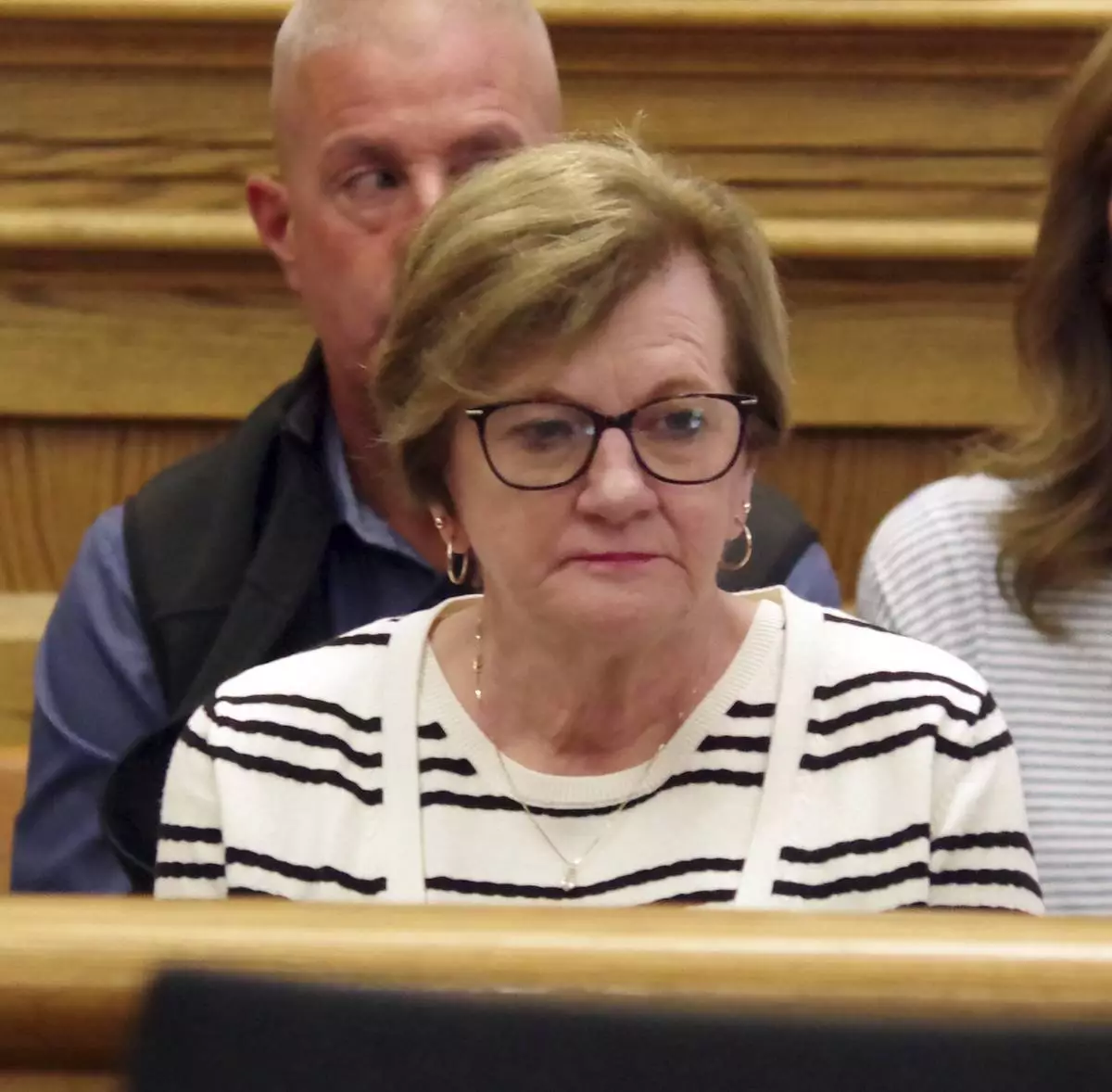
Peggy O'Keefe, mother of John O'Keefe, looks on during Karen Read's trial at Norfolk Superior Court in Dedham, Mass., Friday, May 2, 2025. (Mark Jarret Chavous/The Enterprise via AP, Pool)
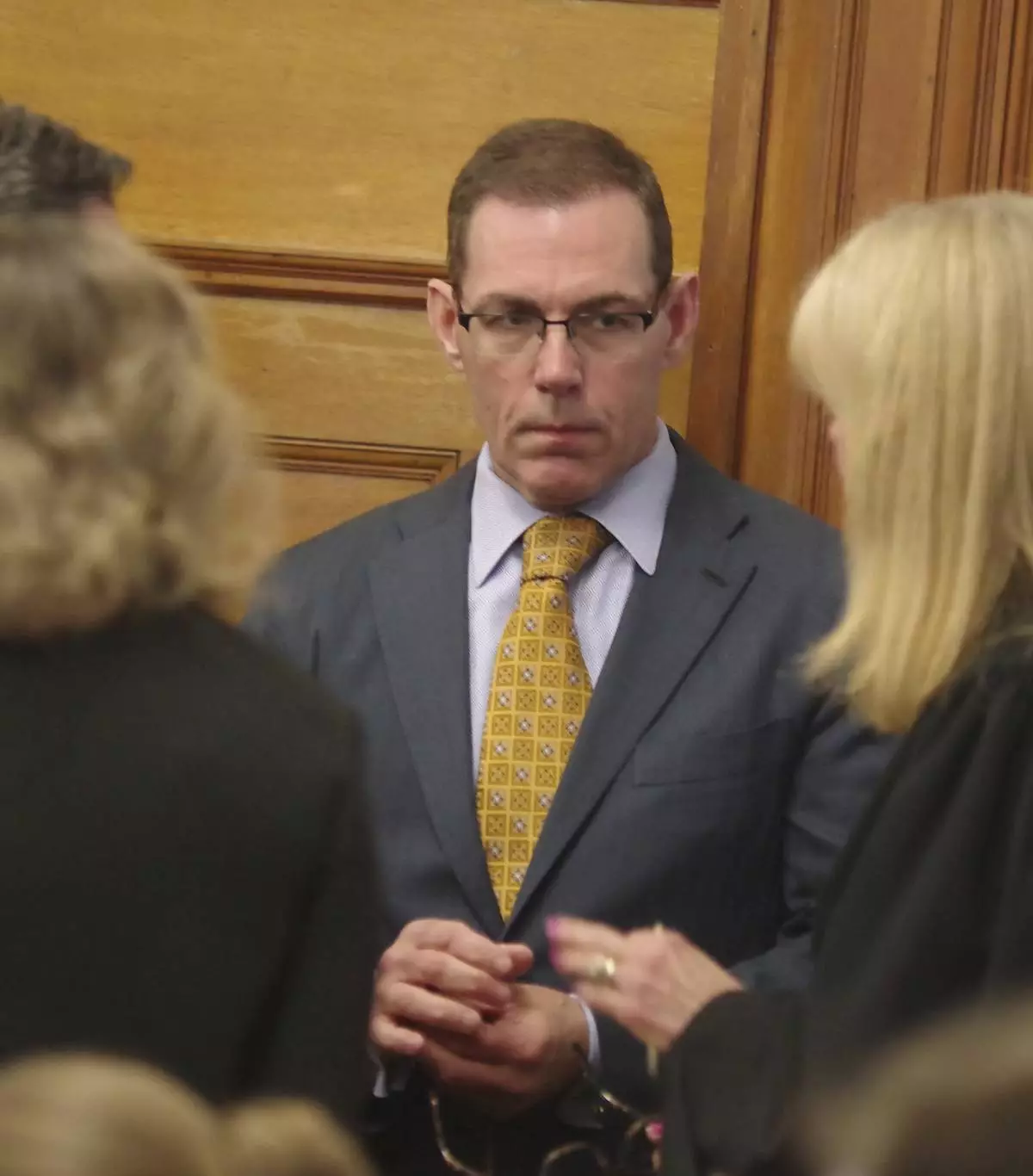
Prosecutor Hank Brennan stands in conference before Karen Read's trial at Norfolk Superior Court in Dedham, Mass., Friday, May 2, 2025. (Mark Jarret Chavous/The Enterprise via AP, Pool)
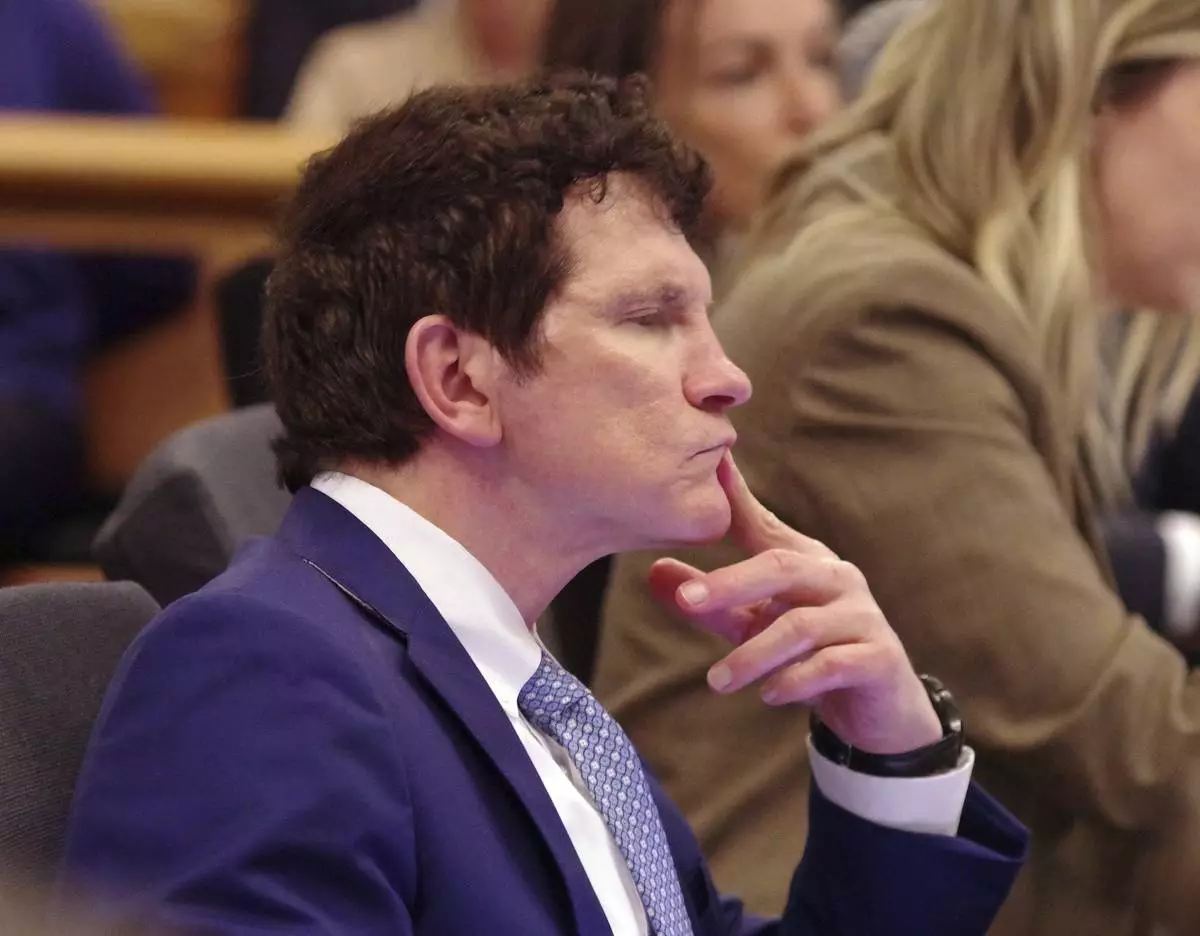
Defense attorney Robert Aleesi listens to the witness testimony of Jen McCabe during Karen Read's trial at Norfolk Superior Court in Dedham, Mass., Friday, May 2, 2025. (Mark Jarret Chavous/The Enterprise via AP, Pool)
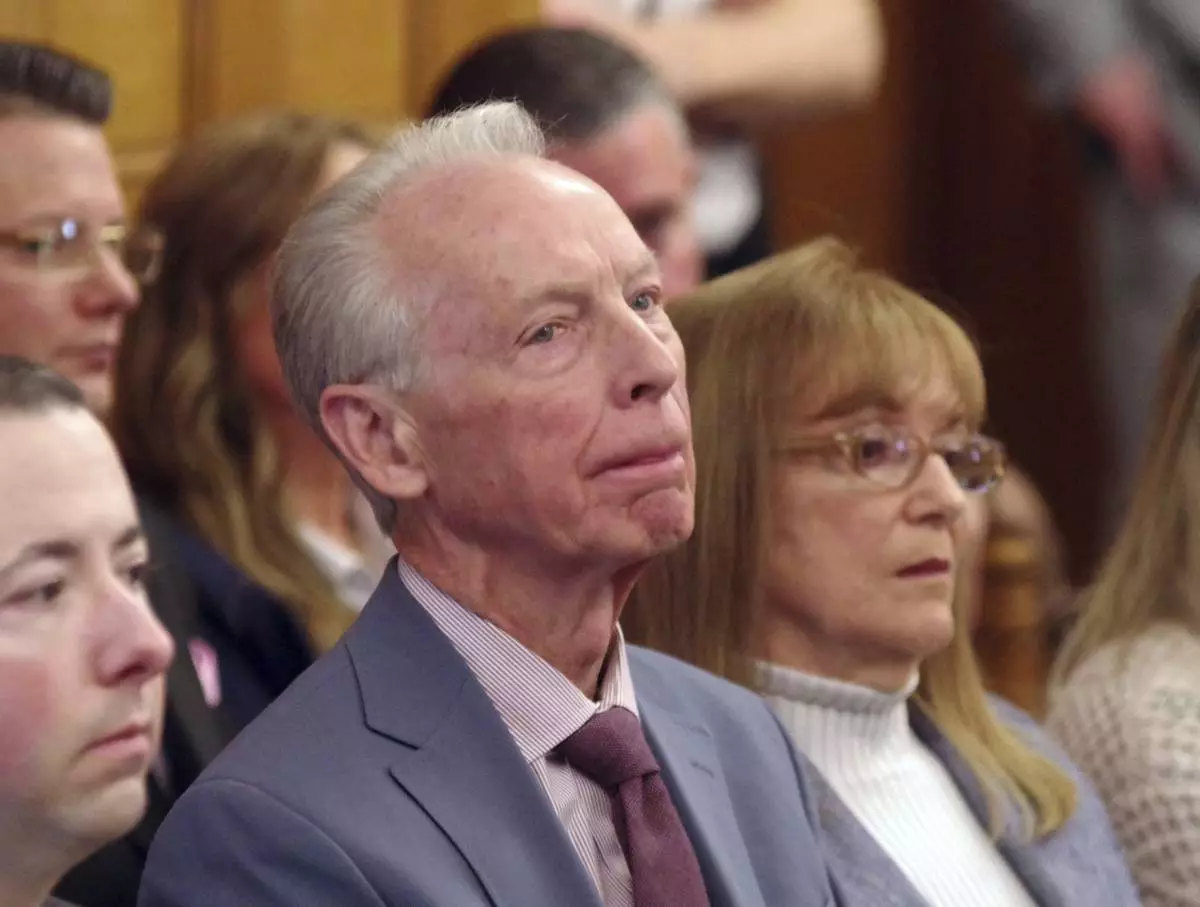
William and Janet Read, parents of Karen Read attend her trial at Norfolk Superior Court in Dedham, Mass., Friday, May 2, 2025. (Mark Jarret Chavous/The Enterprise via AP, Pool)
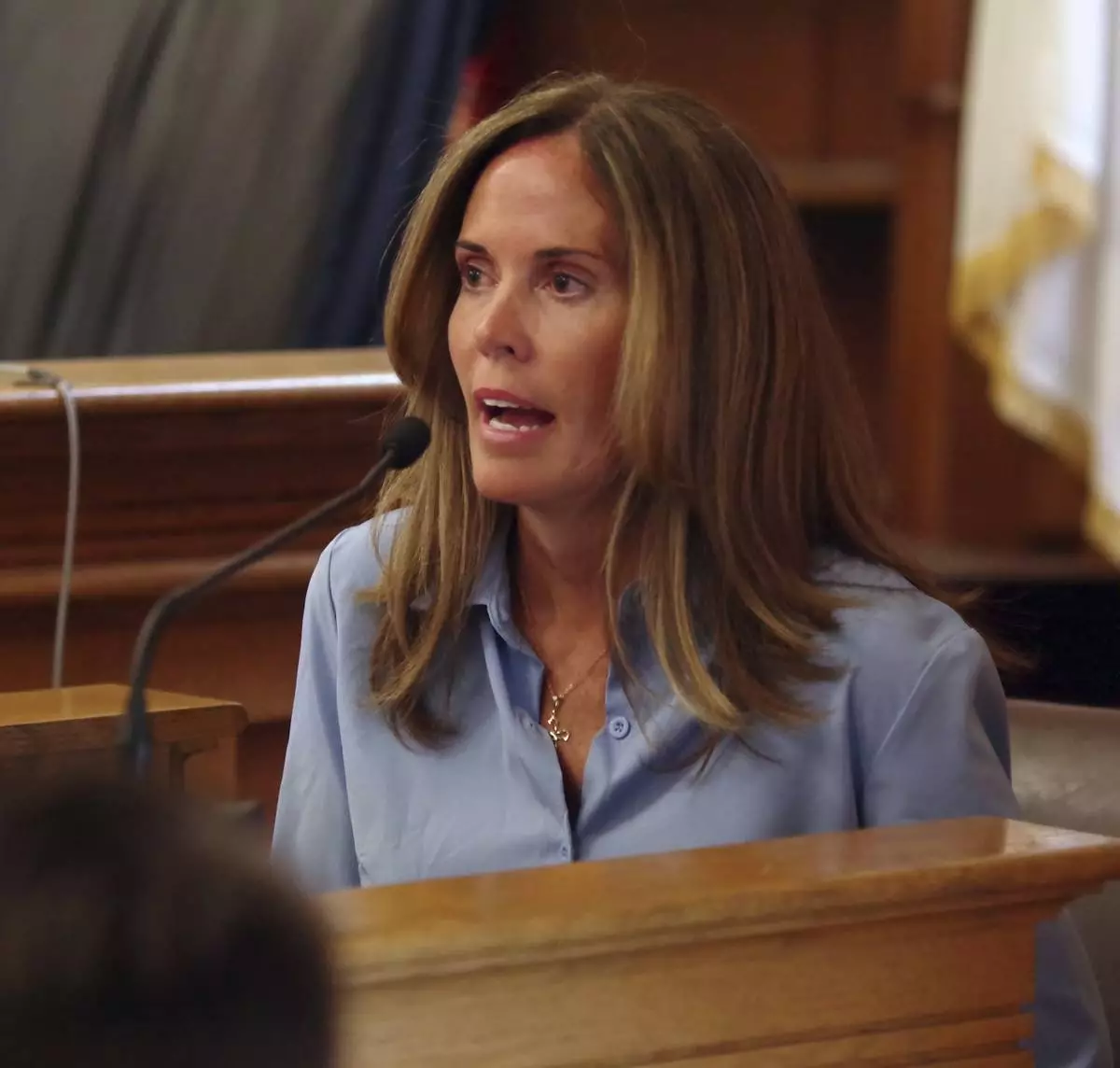
Witness Jen McCabe takes the stand at Norfolk Superior Court during the Karen Read trial in Dedham, Mass., Friday, May 2, 2025. (Mark Jarret Chavous/The Enterprise via AP, Pool)

Alan Jackson, defense attorney for Karen Read, questions witness Jen McCabe during Read's trial at Norfolk Superior Court in Dedham, Mass., Friday, May 2, 2025. (Mark Jarret Chavous/The Enterprise via AP, Pool)
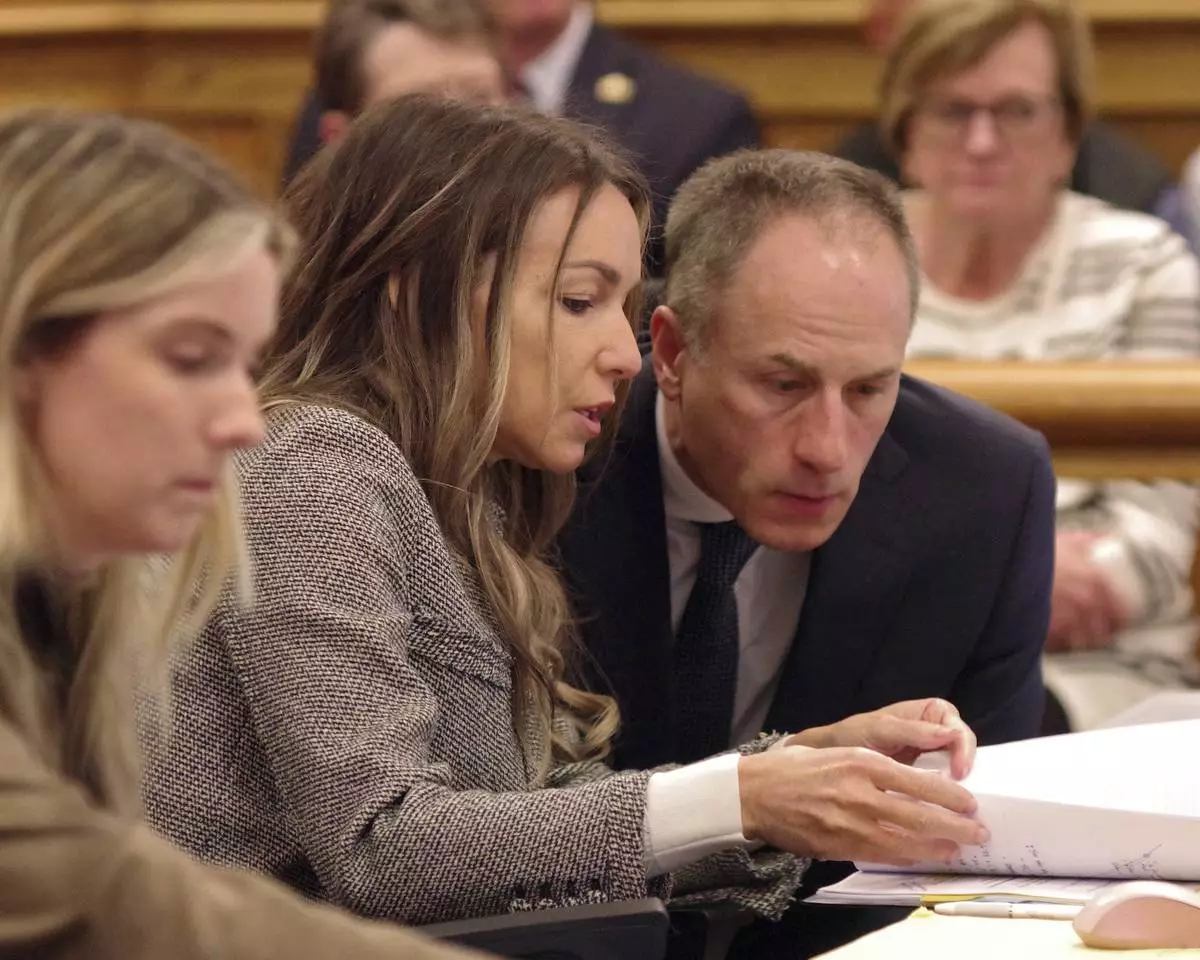
Karen Read confers with attorney David Yannetti during her trial at Norfolk Superior Court in Dedham, Mass., Friday, May 2, 2025. (Mark Jarret Chavous/The Enterprise via AP, Pool)
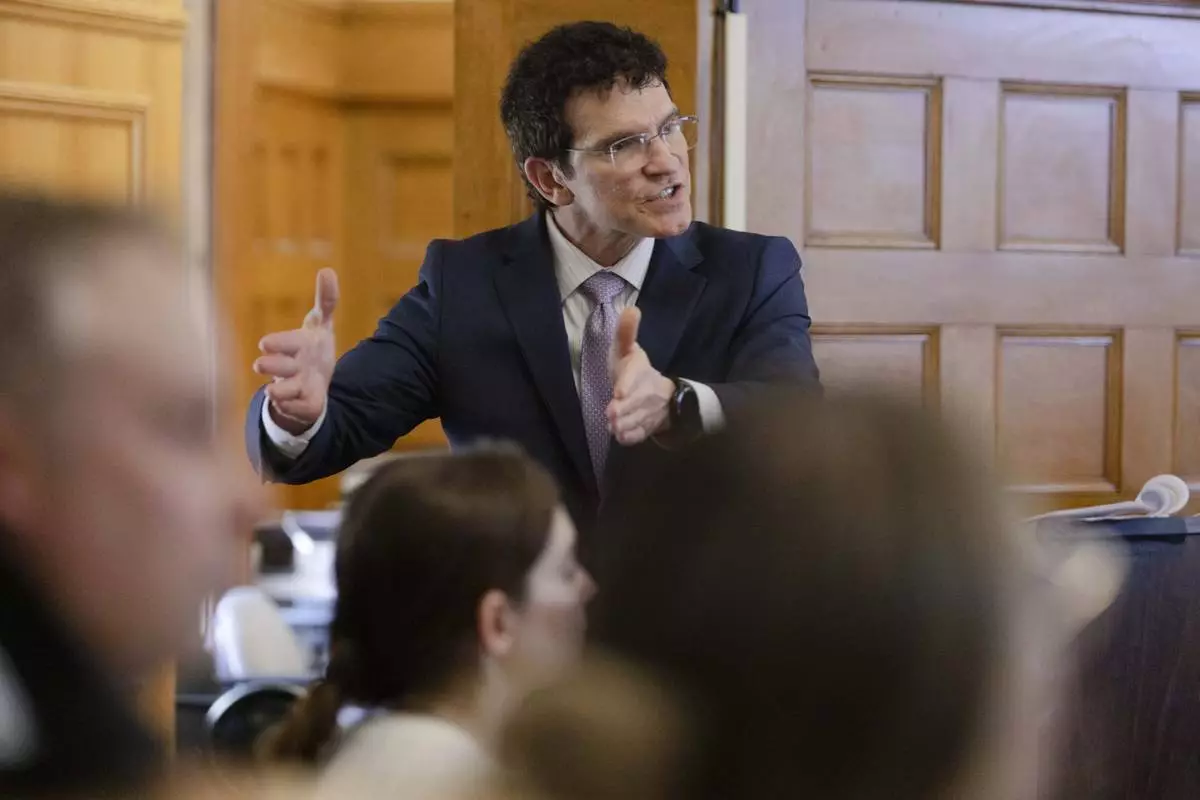
Defense attorney Robert Alessi cross-examines Ian Whiffin, a digital intelligence expert with Celebrite during Karen Read's murder retrial at Norfolk Superior Court in Dedham, Mass., on Tuesday, April 29, 2025. (Libby O'Neill/The Boston Herald via AP, Pool)
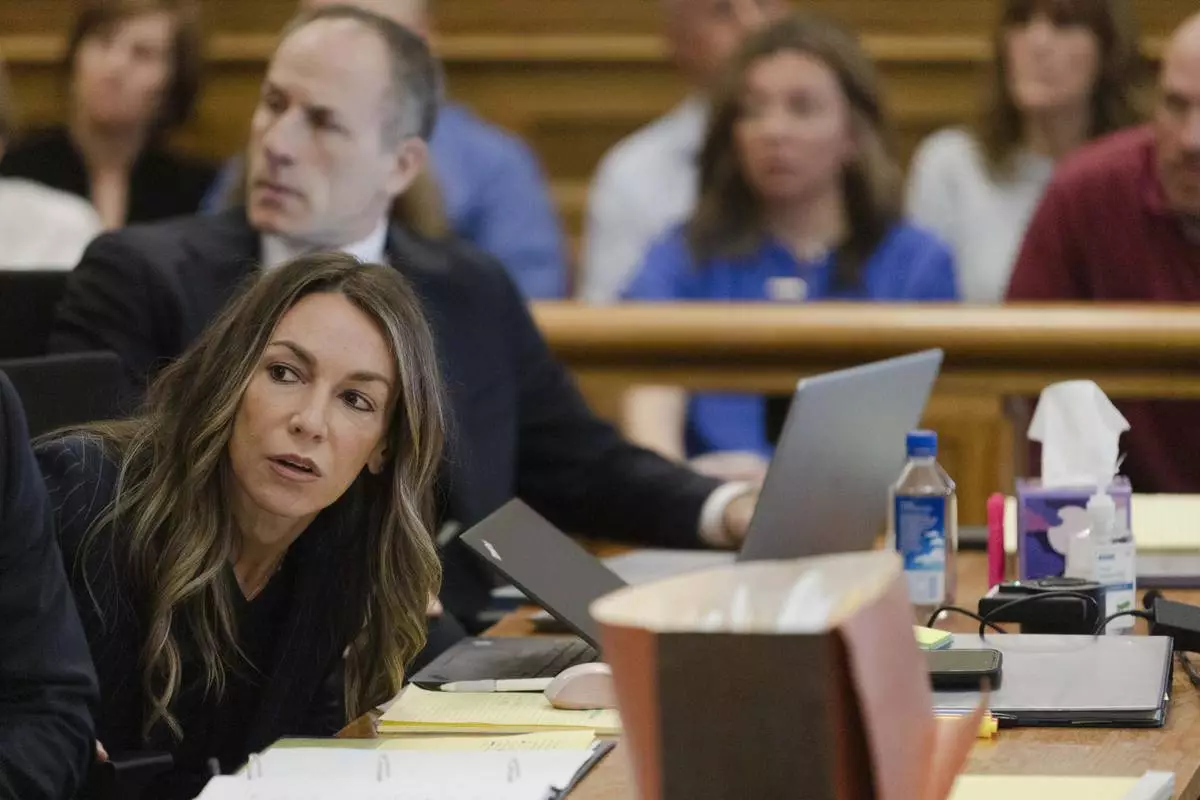
Karen Read listens to testimony during her murder retrial at Norfolk Superior Court in Dedham, Mass., on Tuesday, April 29, 2025. (Libby O'Neill/The Boston Herald via AP, Pool)

Karen Read speaks to her defense attorney Alan Jackson during her murder retrial at Norfolk Superior Court in Dedham, Mass., on Tuesday, April 29, 2025. (Libby O'Neill/The Boston Herald via AP, Pool)
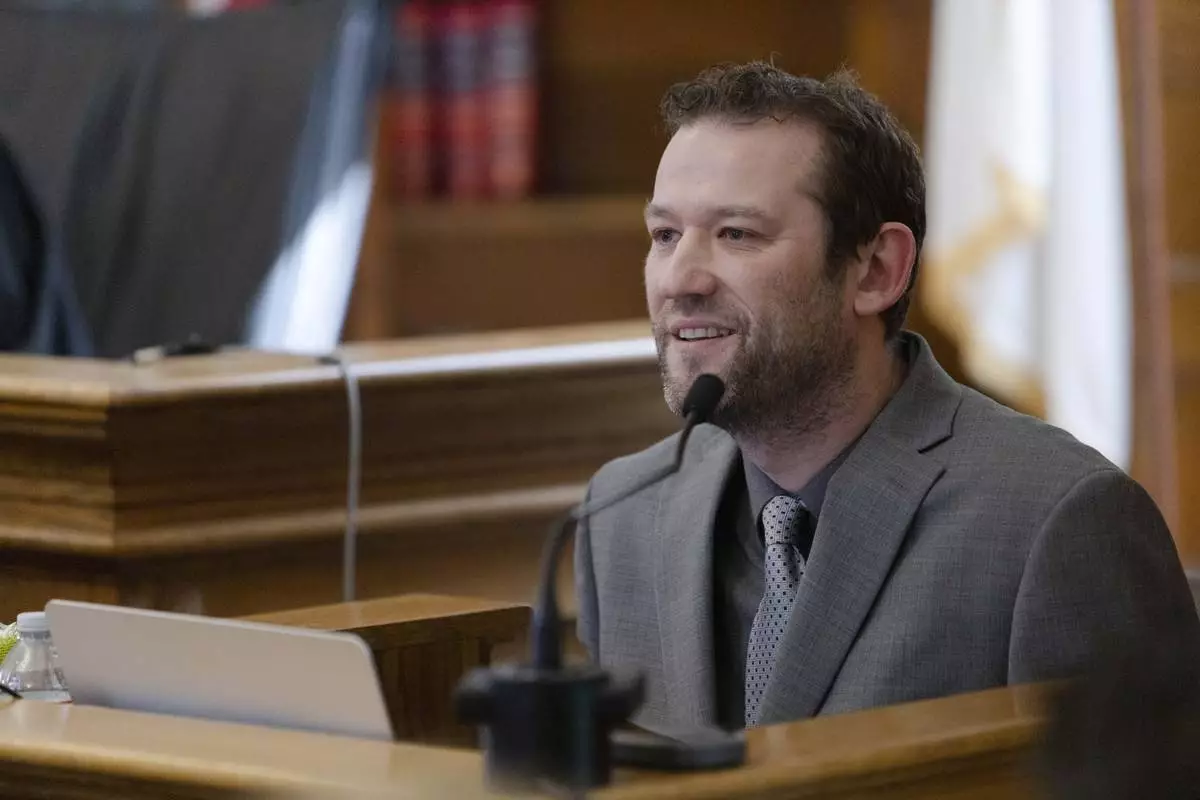
Ian Whiffin, a digital intelligence expert with Celebrite, testifies under cross-examination by the defense during Karen Read's murder retrial at Norfolk Superior Court in Dedham, Mass., on Tuesday, April 29, 2025. (Libby O'Neill/The Boston Herald via AP, Pool)
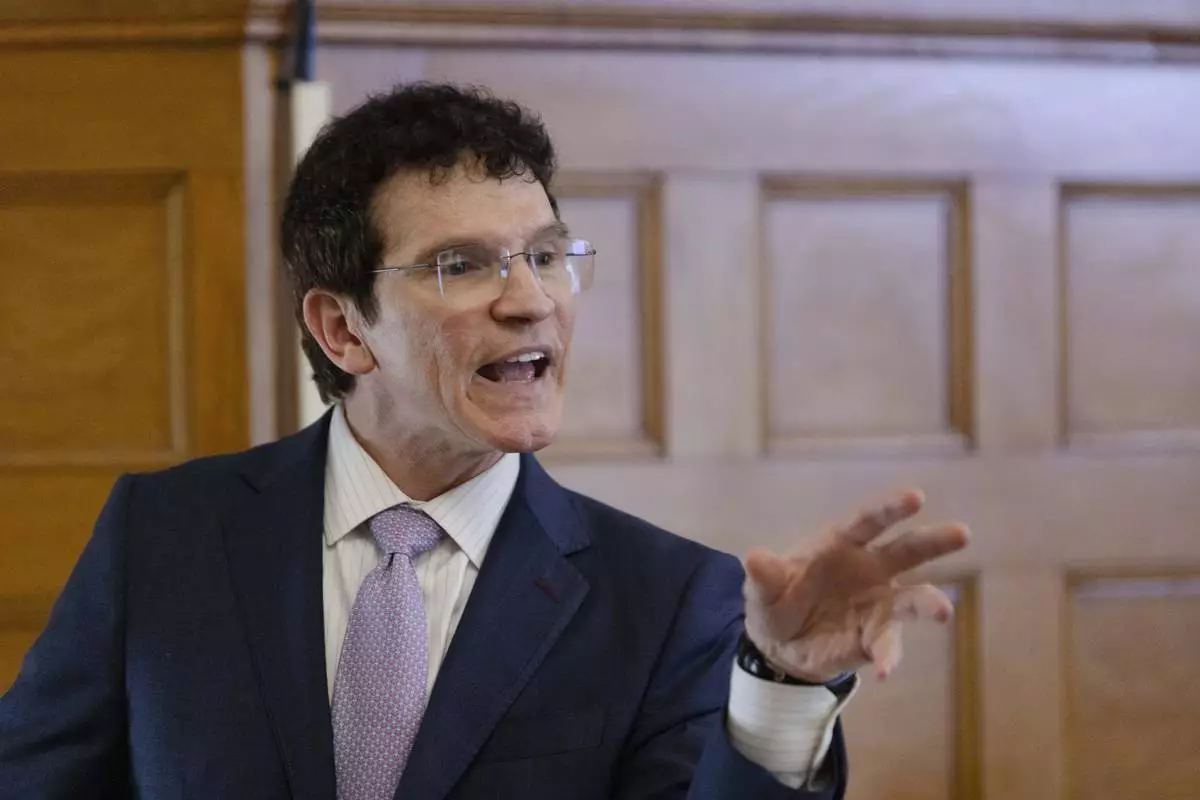
Defense attorney Robert Alessi cross-examines Ian Whiffin during Karen Read's murder retrial at Norfolk Superior Court in Dedham, Mass., on Tuesday, April 29, 2025. (Libby O'Neill/The Boston Herald via AP, Pool)
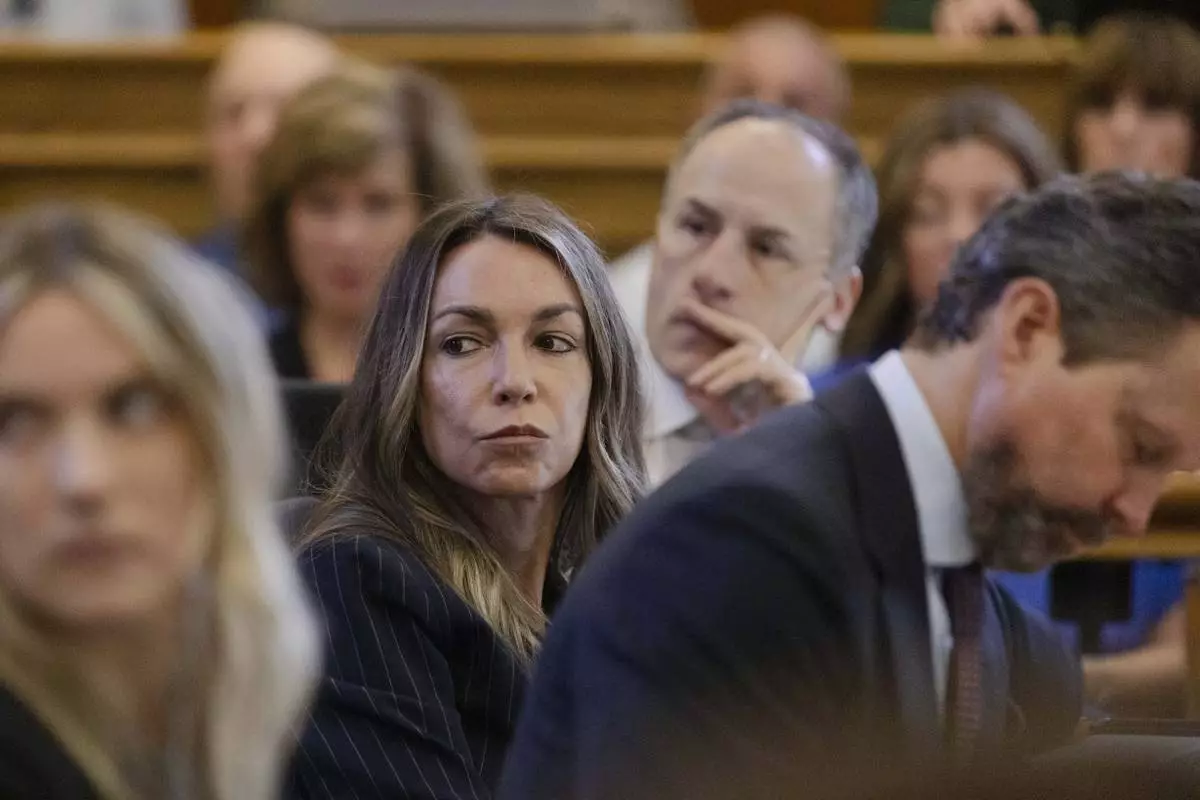
Karen Read listens to testimony during her murder retrial at Norfolk Superior Court in Dedham, Mass., on Tuesday, April 29, 2025. (Libby O'Neill/The Boston Herald via AP, Pool)
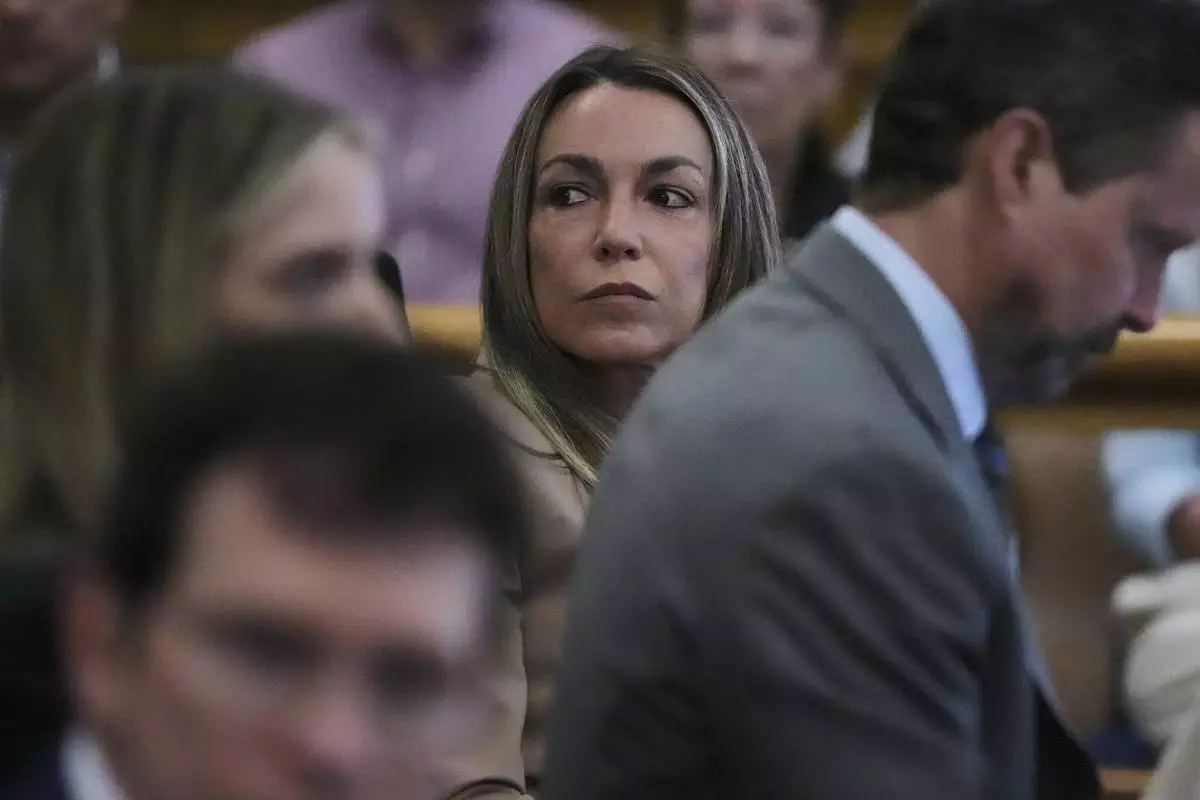
Karen Read listens to testimony during her trial, Thursday, April 24, 2025, at Norfolk Superior Court in Dedham, Mass. (AP Photo/Charles Krupa, Pool)
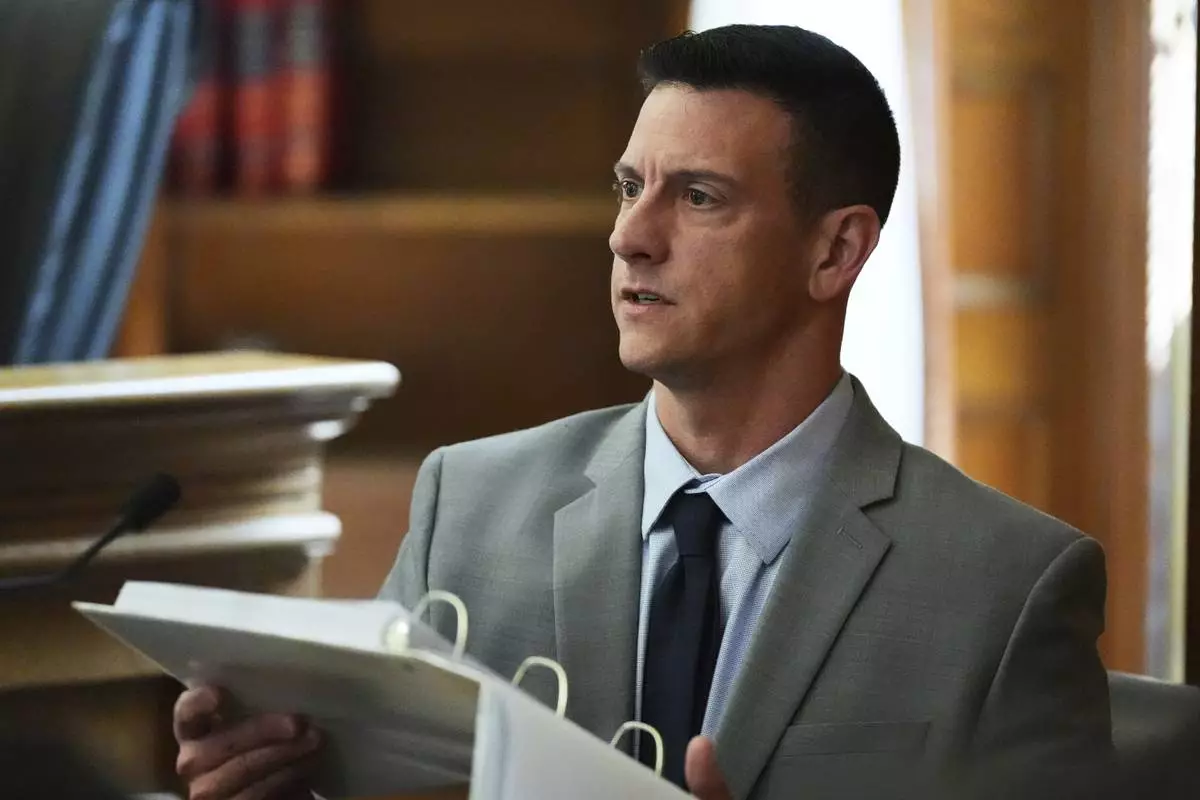
Mass. State Police detective Nicholas Guarino reviews cellular phone logs while testifying during the Karen Read trial at Norfolk Superior Court, Thursday, April 24, 2025, in Dedham, Mass. (AP Photo/Charles Krupa, Pool)
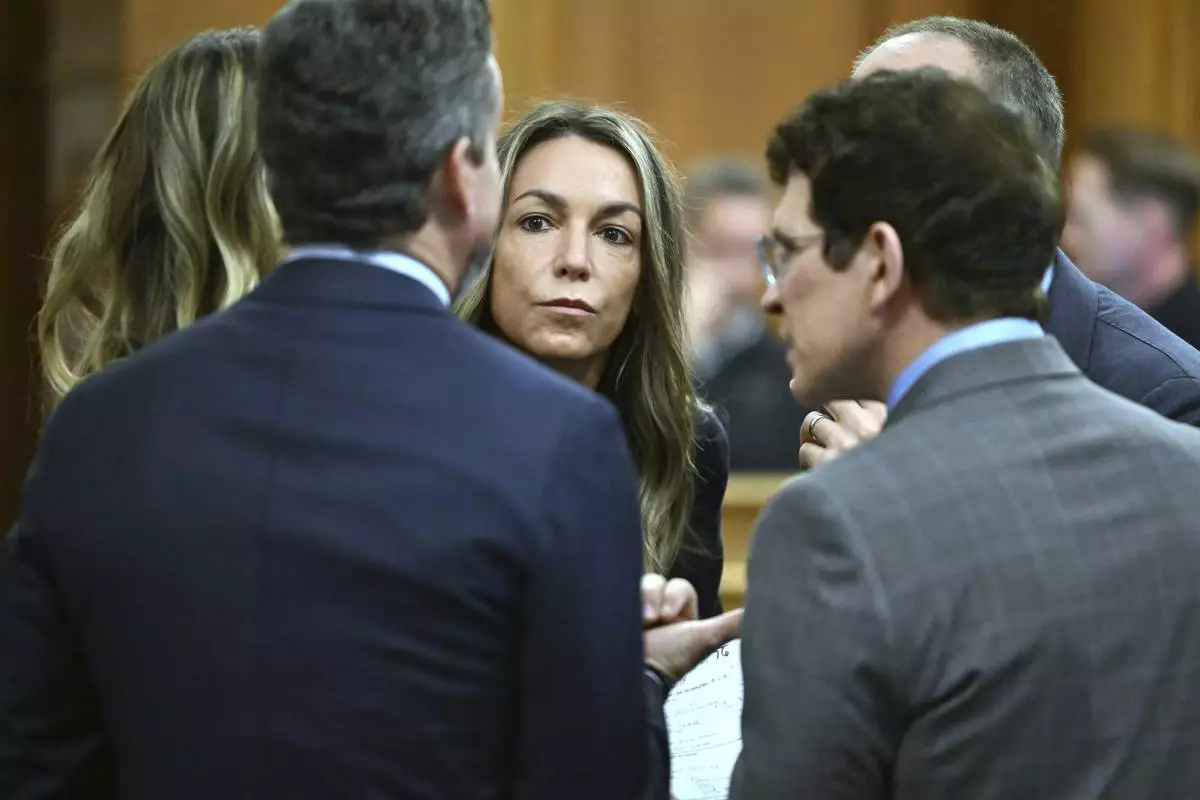
Karen Read, center, speaks with defense team during her trial, Friday, April 25, 2025, at Norfolk Superior Court in Dedham, Mass. (Josh Reynolds /New York Post via AP, Pool)
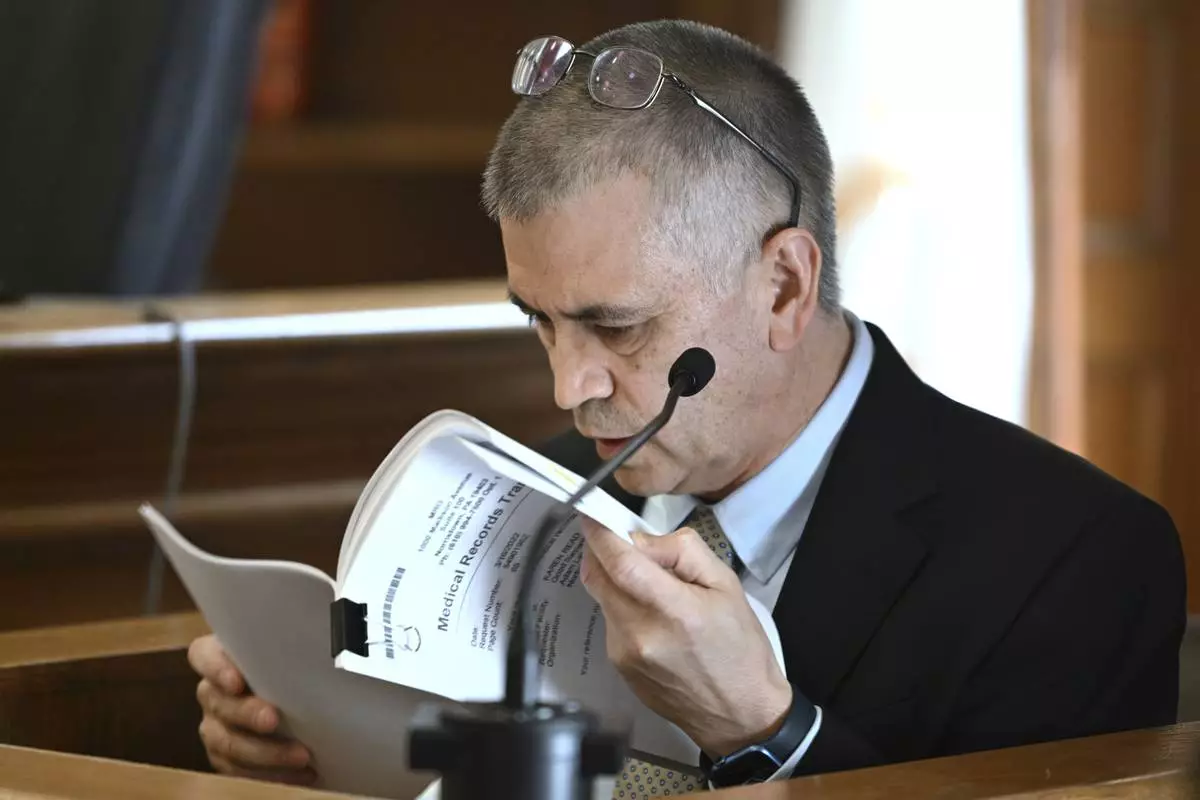
Dr. Garrey Faller reviews the medical record of defendant Karen Read as he testified during her trial, Friday, April 25, 2025, at Norfolk Superior Court in Dedham, Mass. (Josh Reynolds/New York Post via AP, Pool)
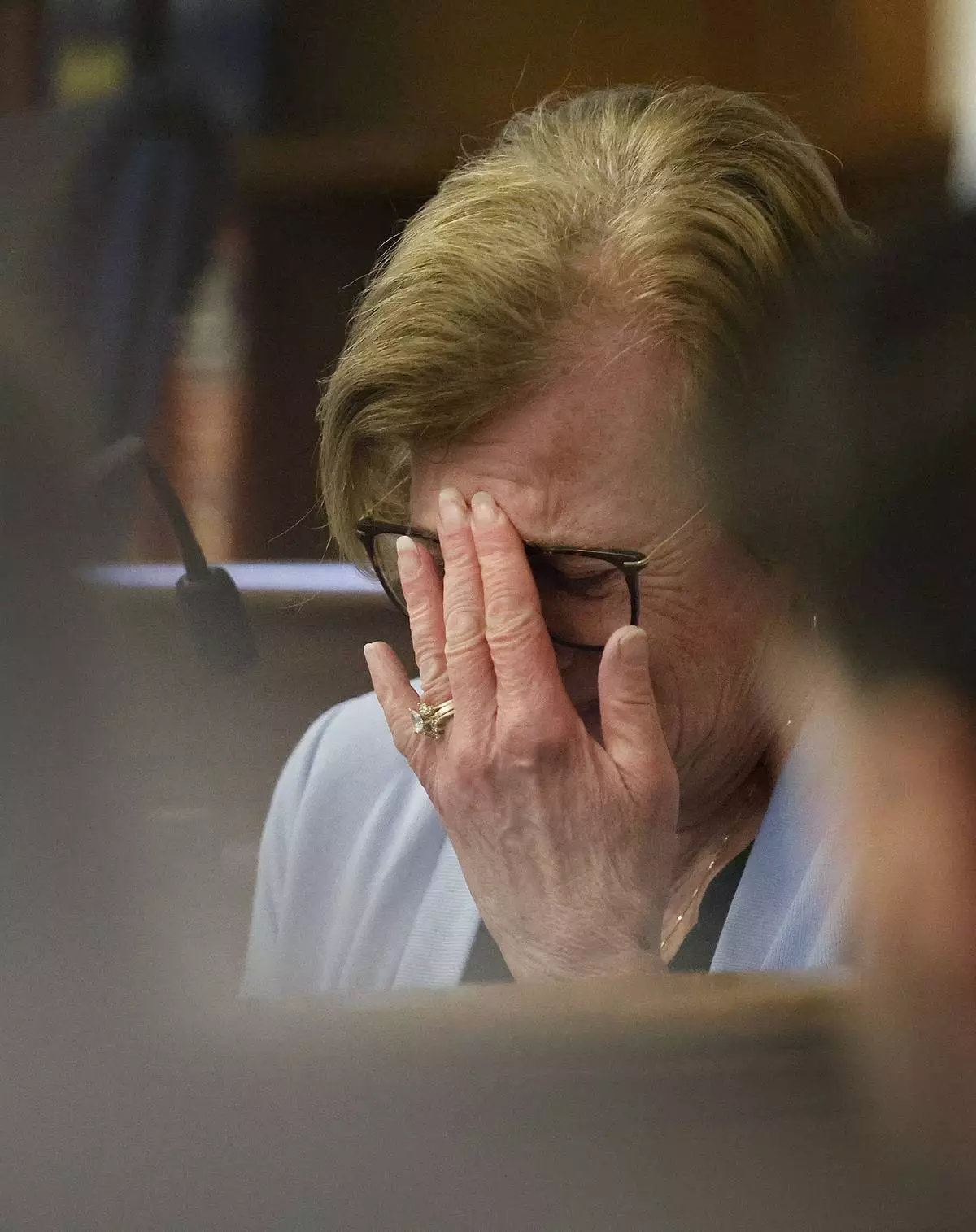
John O'Keefe's mother Peggy recounts hearing about her sons death during the Karen Read trial in Norfolk Superior Court at Dedham, Mass., on Wednesday, April 23, 2025 (Greg Derr/The Patriot Ledger via AP, Pool)
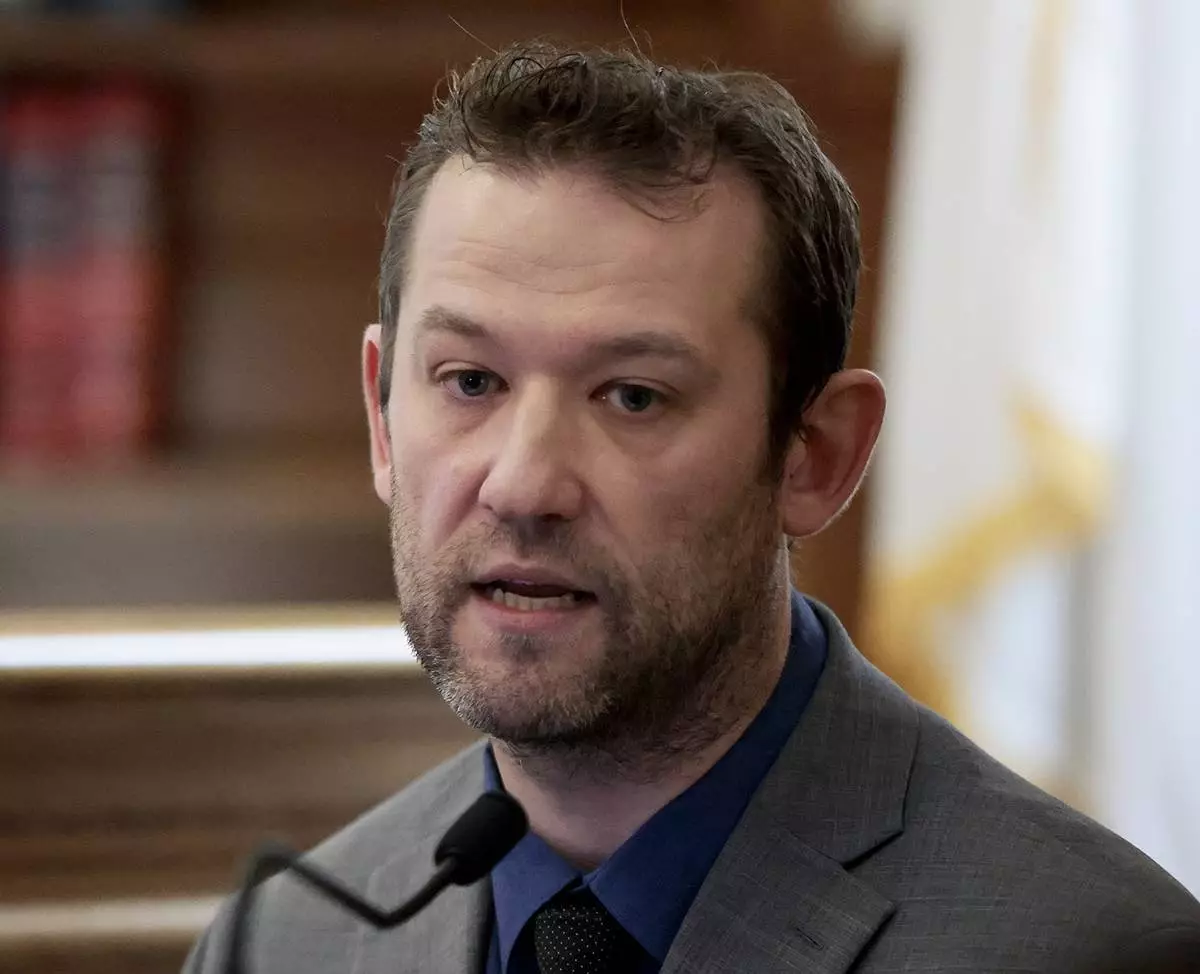
Ian Wiffin, a digital intelligence expert, with Celebrite, testifies under direct examination by special prosecutor Hank Brennan during Karen Read's murder retrial in Norfolk Superior Court in Dedham, Mass., Monday April 28, 2025. (Pat Greenhouse/The Boston Globe via AP, Pool)
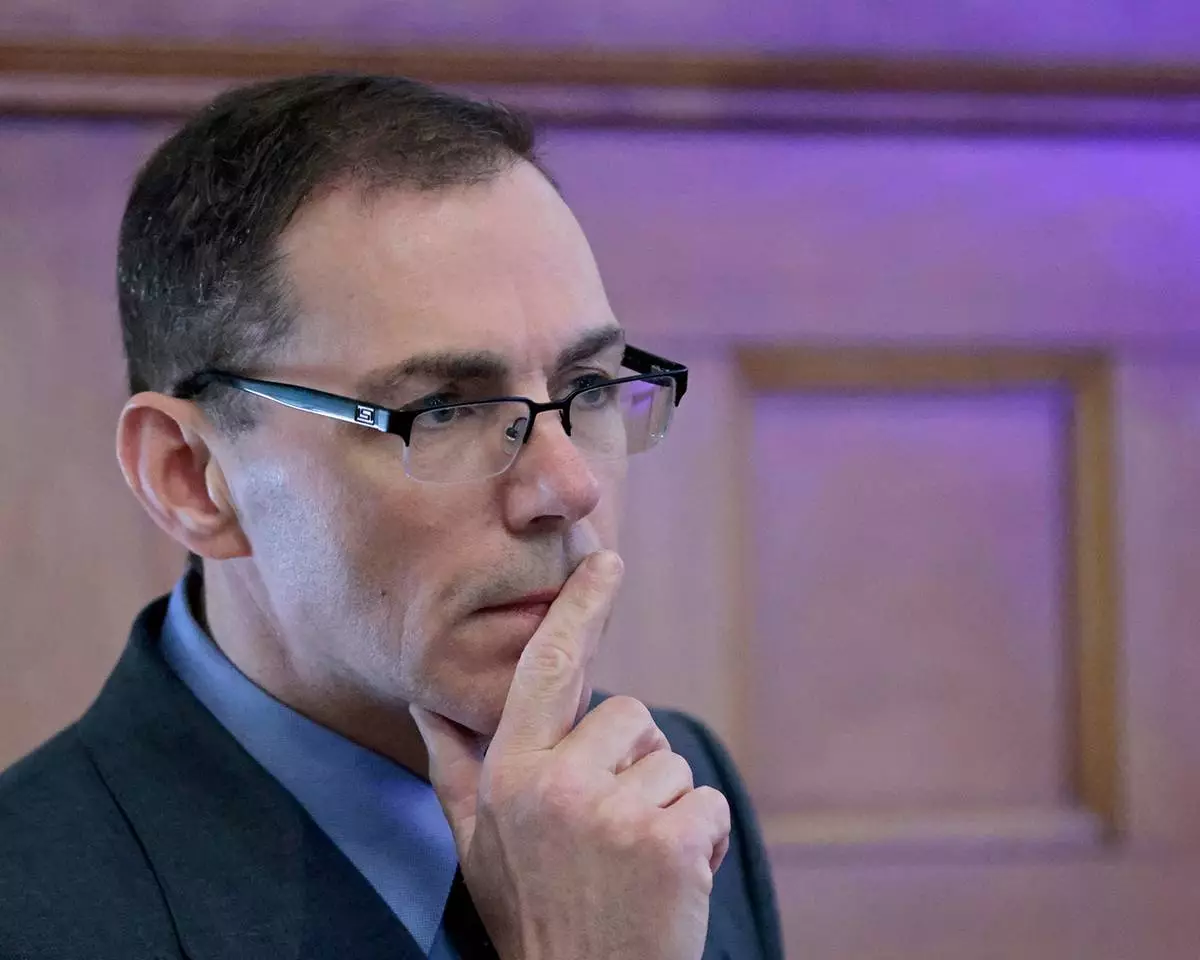
Special prosecutor Hank Brennan questions Ian Wiffin, a digital intelligence expert with Celebrite, during Karen Read's murder trial in Norfolk Superior Court, in front of Judge Beverly J. Cannone, in Dedham, Mass.,Monday April 28, 2025. (Pat Greenhouse/The Boston Globe via AP, Pool)
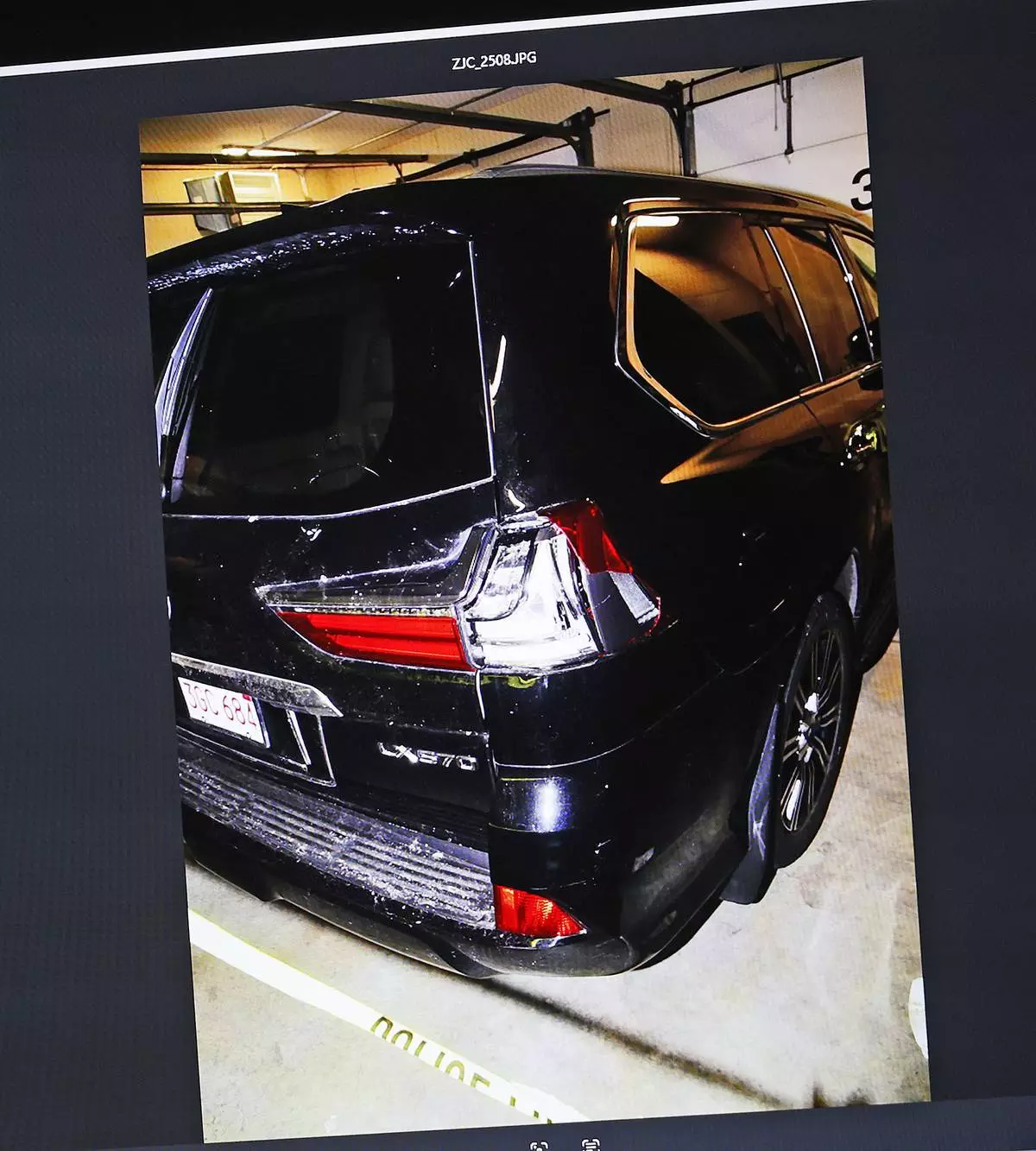
An image of Karen Read's SUV with a damaged taillight which was put into evidence is shown during the Karen Read trial in Norfolk Superior Court at Dedham, Mass., on Wednesday, April 23, 2025 (Greg Derr/The Patriot Ledger via AP, Pool)
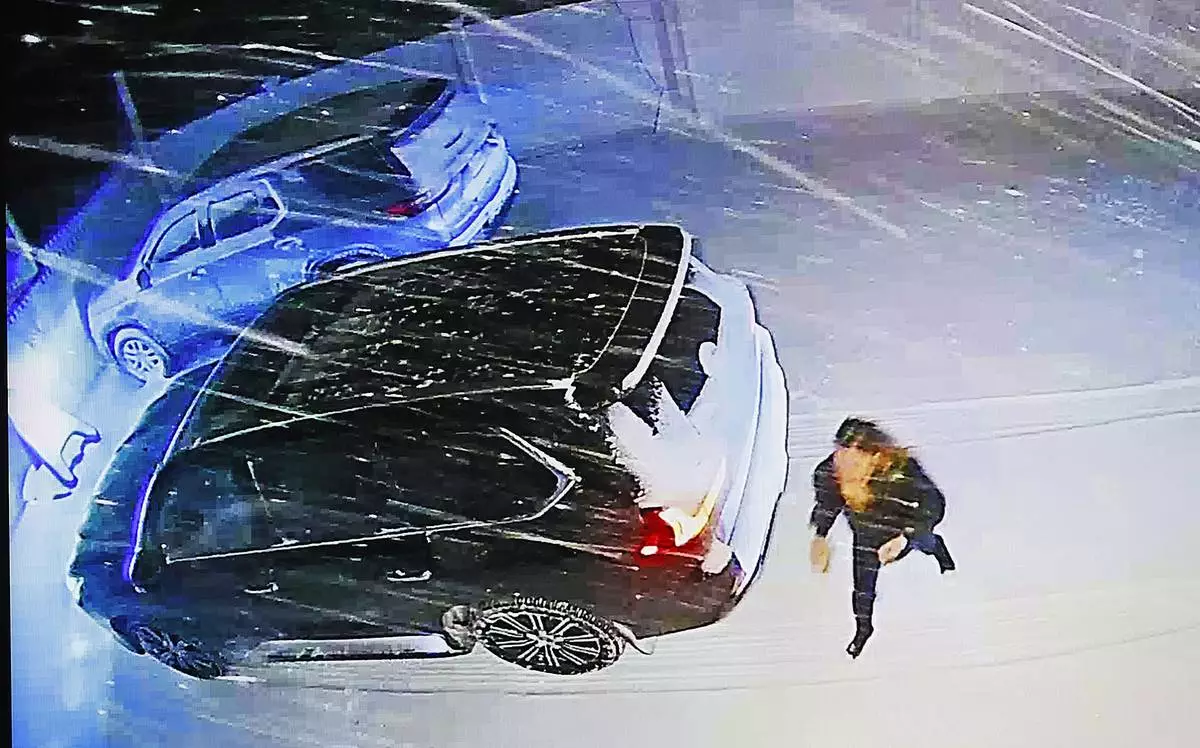
A video from a "Ring" camera at John O'Keefe's home, Karen Read is seen arriving in her SUV to look for O'Keefe with Kerry Roberts and Jennifer McCabe is shown during Read's trial in Norfolk Superior Court at Dedham, Mass., on Wednesday, April 23, 2025 (Greg Derr/The Patriot Ledger via AP, Pool)
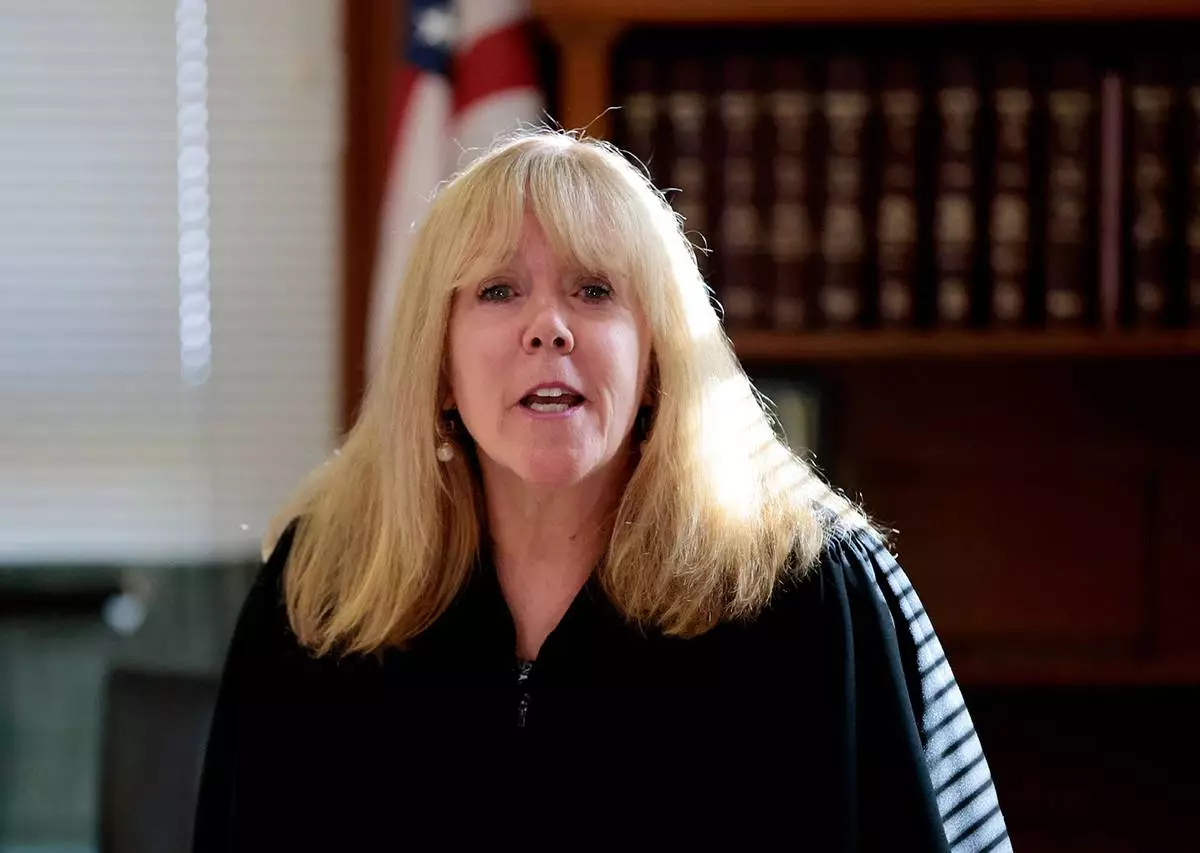
Judge Beverly J. Cannone greets jurors as the murder retrial of Karen Read continues, in Norfolk Superior Court, Dedham, Mass., Monday April 28, 2025. (Pat Greenhouse/The Boston Globe via AP, Pool)
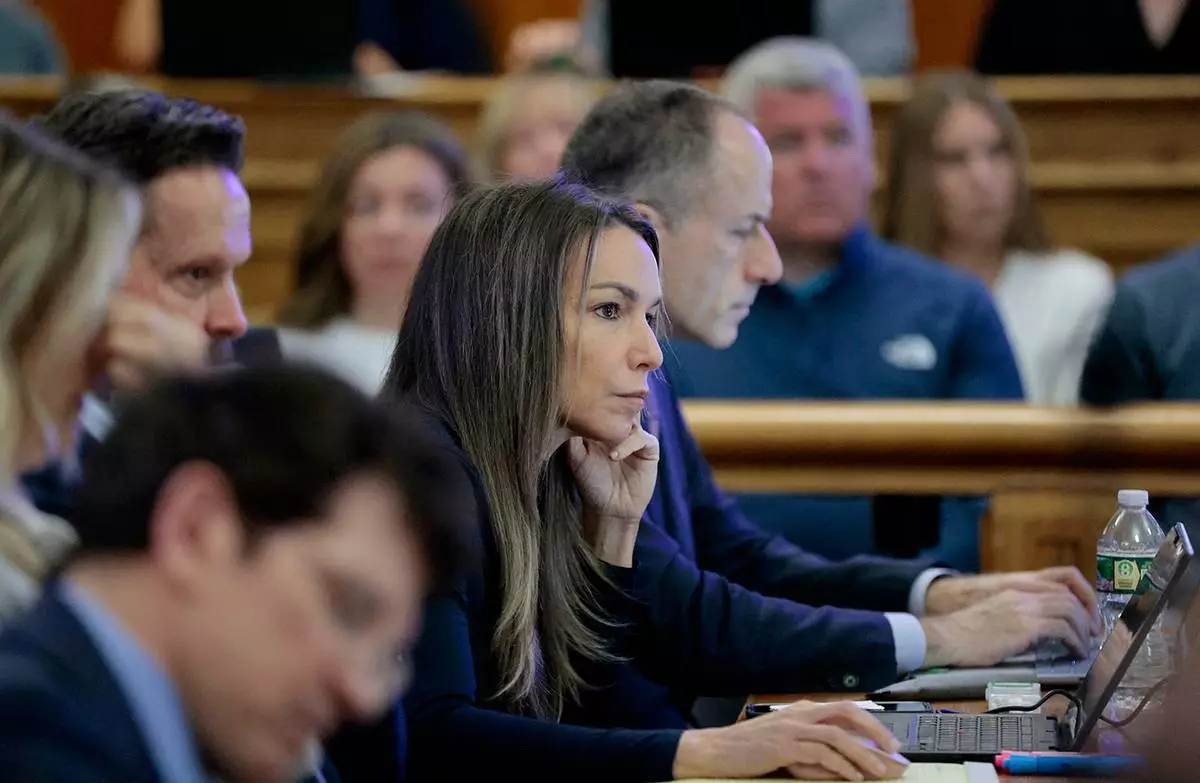
Karen Read listens to the testimony of Cellebrite digital intelligence expert Ian Wiffin, during her murder retrial, in Norfolk Superior Court, in front of Judge Beverly J. Cannone, in Dedham, Mass., Monday April 28, 2025. (Pat Greenhouse/The Boston Globe via AP, Pool)


















































